Art Therapy
Inspiring others to create.

Art Therapy Schools & Programs in Canada
Below is a list of graduate and undergraduate schools and programs in Canada. If you know of any schools or programs that should be added to the list, please leave a comment below. We’ll check out the school and add them to the list if appropriate.
Graduate Schools and Programs in Canada
Calgary, AB, Canada
Prairie Institute of Expressive Arts Therapy Available: Expressive Arts Therapy Certificate Program, Advanced Diploma in Arts Therapy Contact: Carmen Richardson – Director Address: 1528 12th Avenue SW – Calgary, AB T3C 0P9 Phone: 403-245-5553 ext 15 Email: [email protected] Web: pieat.ca
Edmonton, Alberta, Canada
St. Stephen’s College Degree: Master of Psychotherapy and Spirituality (art therapy specialization) Contact: Ara Parker, MA, BCATR, RCAT :: Faculty Lecturer in Art Therapy :: Associate Chair, Art Therapy Program Phone: (780) 439-7311 ext 32 E-mail: [email protected] Web: www.ualberta.ca/ST.STEPHENS/ Description: The MPS (Art Therapy Specialization) program is an approved art therapy training program with The Canadian Art Therapy Association and graduates are able to apply their degree towards the process of registration as an art therapist. This requires additional supervised post-graduation hours. Graduates may also have the option of registering with other professional counselling bodies in addition to CATA. It is the student’s responsibility to consult directly with their preferred registering association(s) and to plan their course of study accordingly.
Montreal, Quebec, Canada
Concordia University Degrees: Masters of Arts (MA) in Creative Art Therapies: Art Therapy, Drama Therapy and Music Therapy Options, Graduate Certificate in Music Therapy Contact: The Department of Creative Arts Therapies Address: 1455 de Maisonneuve Boulevard West,VA-264, Montreal, Quebec, Canada H3G 1M8 Phone: 514-848-2424 x4790 Email: [email protected] Website: http://creativeartstherapies.concordia.ca
Kutenai Art Therapy Institute Post-baccalaureate Art Therapy Diploma Program Address: 191 Baker Street, 2nd Floor; Nelson BC V1L 4H1 Phone: (250) 352-2264 Toll free: 1-800-580-6388 E-mail: [email protected] Description: The Kutenai Art Therapy Institute (KATI) is dedicated to the belief that the creative process is healing and life enhancing. The Institute offers art therapy services to children, youth and adults, an accredited two year post-baccalaureate Art Therapy diploma program and professional development opportunities in expressive arts therapies and ecological identity. The KATI program integrates Art Therapy theory, practice and research.
Toronto, Ontario, Canada
Toronto Art Therapy Institute Art Therapy training program Contact: Executive Director: Dr. Helene Burt, D.A., RCAT, ATR (Doctorate of Arts in Art Therapy, NYU) Address: 66 Portland Street, Suite 103, Toronto, ON, M5V 2M8 Phone: (416) 924-6221 Email: no email address available. Website: http://www.tati.on.ca/index.php As noted in the comments, they are also offering an online art therapy program (aka distance learning). You can find more information about that here .
ISIS CANADA Creative Integrative Arts Therapy Training Program Address: 468 Queen St. E. Suite LL01; Toronto, ON Canada Tel: (416) 539-9728 Email: [email protected]
West Vancouver, British Columbia, Canada
Vancouver Art Therapy Institute Contact: No name available Address: 350 –1425 Marine Drive, West Vancouver, British Columbia, Canada, V7T 1B9 Phone: 604.926.9381 Email: [email protected] Web: http://vati.bc.ca/ 15-month FT Art Therapy Diploma Program and an Advanced Diploma / Distance Art Therapy Program. View their website for more details.
Additional Art Therapy Related Programs in Canada
Vancouver, BC Canada
Langara College Expressive Arts Therapy Certificate Training Program Contact: Ofir Gabay Address: 100 West 49th Avenue, Vancouver, BC Canada V5Y 2Z6 Phone: 604.323.5925 E-mail: [email protected] Visit website Description: Langara College offers an exceptional Expressive Arts Therapy Certificate program. It has been the only integrative arts-based therapy training in BC for over 6 years. Graduates have gone on to practice as an Expressive Arts Therapist within a range of educational, clinical and community settings.
As a public college, Langara prides itself on the quality of education we offer and the experience and expertise of our instructors. All programs must go through a rigorous approval process before being offered to the public to ensure that our students expectations will be met and that the industry will recognize our graduates as fully prepared, qualified experts.
October 16 at 12:37 am
Vancouver Art Therapy Institute vati.bc.ca check it out! it’s located in North Vancouver
March 11 at 1:48 pm
Actually, since 2010, we are located on the lovely Granville Island!
https://granvilleisland.com/
October 16 at 12:38 am
there is also an art therapy institute in Toronto.
July 5 at 12:11 am
I checked it out and honestly, it seems pretty hokey. You are not able to get a BA degree let alone a MA. Disappointing – I would have thought there would be more available in Toronto.
August 30 at 4:53 pm
Is there no Art Therapy training on the East Coast of Canada?
July 5 at 12:34 am
Concordia is supposed to have an awesome program.
November 15 at 3:37 pm
There is a great online art therapy school recognized by CATA called CiiAT. it is Based out of Victoria, BC but all classes are online and it is a diploma program! I am a student there and love it! Check it out! http://www.ciiat.org
December 9 at 4:15 am
I am also seeking to find one in Eastern Coast, to no avail, sadly
September 2 at 11:46 am
Will there ever be an Art Therapy school in Manitoba? The more I learn about it, the more I want to be a part of this growing profession.
August 3 at 10:40 am
Check out Winnipeg Holistic Expressive Arts Therapy. WHEAT will begin offering diplomas in art and drama therapy in 2016. Check out the website. There are other wonderful things going on at WHEAT already (August 2015).
November 15 at 3:39 pm
April 17 at 11:50 am
There is WHEAT Institute – in its third year in Manitoba, with certificate and diploma programs in art therapy and expressive art therapy, and new offering is dual diploma (art therapy and expressive art therapy), also drama therapy.
November 9 at 6:32 pm
I have recently begun learning about art therapy as a profession. I was curious as to what I might need for entry into the master’s program? I have a 4year bachelor’s degree in Community Design form Dalhousie University, a partially completed 2 of four year bachelor’s degree in fine arts from N.S.C.A.D and have taught English as a second language in South Korea. What steps might I require to apply and complete the art therapy program at the master’s level? Any comments would be greatly appreciated..
March 18 at 1:15 pm
Hi David, pretty much every program I have seen in Canada, you need a bachelor’s degree to pursue a diploma/Masters in art therapy. Most of them do not care what the concentration of the degree is, but require a minimum (anywhere from 3-6, sometimes specific, psychology courses) and sometimes they require you to have actual studio credits as well (which it sounds like you have). I believe St Stephens requires the art therapy students to have a BFA. Just check with them. Some of them require experience in a teaching, therapeutic or counselling environment; some recommend it but do not consider it mandatory. I have researched each of the programs at great length and they all have slight variances, so I would just check the admissions requirements in the various schools and contact them to see if your particular degree would be accepted. As for registration with the CATA, they require a diploma or Master’s degree from a recognized institution (you can find the list on their website) plus a certain number of professional hours and supervised hours logged. But you can practice as a professional art therapist following completion of your diploma/degree, while you are working towards registration. 🙂 Hope that helps. (This is just my findings through research, I’m not a professional and don’t speak on behalf of any institution or licensing body.)
November 15 at 3:53 pm
Check out the program requirements at Ciiat: http://www.ciiat.org
November 10 at 3:21 pm
I am professional artist,trained in Poland(years ago), In Canada I took several courses in decorating,silk painting color therapy and feng shui.I realy would like to be art terapist,but my education from Poland is not an equivalent with BA which is required for taking that course .What can I do to be able to study that? Is there any other training or school for undergrads? Please help me to find out.Thank You.My regards.
December 4 at 9:03 am
try this one…:) http://www.arscura.com/course.html
November 15 at 3:41 pm
Check out http://www.Ciiat.org They should recognize your education as they are an international online art therapy school but are based out of Victoria, BC, Canada.
April 4 at 9:52 pm
have you looked at VSOHA or VATI or Langara College – they are all in Vancouver BC
March 9 at 11:55 am
Wondering what you know or think about the Haliburton/ Fleming College Certificate program for Expressive Arts therapy? deb
March 15 at 7:59 pm
terapist,but my education from Poland is not an equivalent with BA which is required for taking that course .What can I do to be able to study that? Is there any other training or school for undergrads? Please help me to find out.Thank You.My regards.
April 10 at 1:09 am
Not listed is Kutenai Art Therapy Institute in Nelson, B.C. Canada – it’s a very good school with an excellent program! I would recommend it to anyone looking to persue a career in art therapy. It is a very small school with more freedom to look at international students who meet equivalent requirements to BA. Look into it – the woman who runs it is very reasonable and provides her students with an high quality education. The program is a two-year diploma, with distance option.
August 22 at 12:39 pm
Hi, I am an international student, do you happen to know if getting an Art Therapy Diploma is recognized in the USA or UK and if it is not then what do I need to do once I go back to get it recognized?
April 26 at 7:59 am
I notice you don’t mention the 3 year Expressive Arts Therapy program at ISIS in Toronto.
September 25 at 8:44 am
The Toronto Art Therapy Institute (TATI) will begin offering a distance learning graduate program beginning in January of 2012. So if you live in Alberta, Saskatchewan, Nova Scotia or Poland or anywhere else on the planet, you can receive the excellent training offered. You will be personally supervised via Skype and be qualified as a professional Art Therapist with a graduate diploma after completion of the requirements. Here is the link: http://www.tati.on.ca/index.php?thread=26
October 25 at 1:36 pm
Can you please update the coordinates for:
Graduate Art Therapy Schools & Programs in Canada
Concordia University Contact: The Department of Creative Arts Therapies Address: 1455 de Maisonneuve Boulevard West,VA-264, Montreal, Quebec, Canada H3G 1M8 Phone: 514-848-2424 x4790 Email: [email protected]
http://creativeartstherapies.concordia.ca
Masters of Arts (MA) in Creative Art Therapies: Art Therapy,Drama Therapy and Music Therapy Options
Graduate Certificate in Music Therapy
January 2 at 6:27 pm
Hi, I was very interested in Concordia’s Art Therapy program and was curious as to know how subsidized is the program? If I want to pursue it right after college, would it be financially possible to pay for undergraduate student loans while pursuing this degree? What are other universities that are heavily subsidized?
– Carly
July 31 at 11:30 am
Hi Carly. It depends where a student loan is based out of, but if it is a Canadian government or provincial government loan, often the payments and interest goes into abeyance when a student is pursueing further full-time education.
January 4 at 6:57 am
Hi: please check info on Canadian Art Therapy Schools. It needs some updating. See the website of the Canadian Art Therapy Association / Training. e.g. The Vancouver Art Therapy Institute has moved to Grandville Island, in Vancouver. other schools in BC, two in Alberta, etc. Someone asked about whether there is a training program on the East Coast. I am in the process of starting a branch in Halifax (serving the east coast). This would be a collaboration with the Kutenai Art Therapy Institute (KATI) in Nelson BC. According to plan we hope to start with the first cohort by the end of August 2012
January 16 at 7:49 am
I am a graphic designer and have been in the industry for 13+ years, however would like to look at becoming an art therapist. Does anyone have any information as to how I can do this? I have been reading that you need university first, however I have 3 college diplomas that have to count for something? Any help would be greatly appreciated. Thank you, Carol
March 18 at 1:20 pm
Everything I have ever seen regarding entry to a designated art therapy program requires you to have a bachelor’s. There’s something on it here:
http://canadianarttherapy.org/become-an-art-therapist
April 24 at 8:19 pm
I would like to hear some experiences or opinions from people that got their training at the Vancouver Art Therapy Institute (VATI).
Also, I would like to know wich programs include psychoanalytical bases in their approach.
Thanks a lot !
May 31 at 8:20 pm
Please include St. Stephen’s College, in Edmonton, Alberta, Canada to your list of schools. There are only 2 schools in Canada currently offering Masters Degrees in Art Therapy: Concordia in Montreal (listed by you already) and St. Stephen’s in Edmonton. Our program (approved by CATA) is called a Master of Psychotherapy and Spirituality-Art Therapy Specialization (MPS) I am the new Associate Chair of the program and am available for any questions and inquiries. Many thanks! Sincerely,
Ara Parker, MA, BCATR, RCAT Faculty Lecturer in Art Therapy Associate Chair, Art Therapy Program Phone: (780) 439-7311 ext 32 http://www.ualberta.ca/ST.STEPHENS/ [email protected]
April 26 at 2:11 am
Good day Ara
I am a South African that would like to study MPS by you. How would you advise me to go about it. Are there any scholarships available or partial distance learning?
Kind regards
Kara Schoeman
July 20 at 12:28 pm
I am looking for some help in finding out whether or not this Art therapy can be taught online or if there is any courses i may take online..Very interested in the field but nothing near me. Can anyone out there help me, thank you
March 18 at 1:22 pm
I’m not sure if you found what you were looking for but Kutenai Art Therapy Institute based in Nelson, BC is available online (with the exception of three in-person intensives each year). You might want to check it out, if you haven’t already.
http://www.kutenaiarttherapy.com/web/distance/
August 7 at 9:44 pm
If you attend a Canadian school such as Vancouver Art Therapy Institute (VATI), are there a lot of hoops to jump through to come home to the US after attending VATI and practice Art Therapy? The Institute says that it follows the guidelines of the American Art Therapy Associations.
July 25 at 11:31 am
To my understanding it’s relatively easy. Did you check the website of the AATA? The CATA states they will offer any specially designated programme offered in the US. I’m assuming it’s probably the same vice versa.
August 22 at 12:44 pm
Hi Laura, Im in American too but really want to do thee Diploma. Have you heard anything or figured anything out about transferring back to America?
August 28 at 12:25 am
We’ve recently updated the art therapy schools and programs for Canada. Thank you everyone for your suggestions and comments!
September 26 at 6:37 am
Dear Sir, I am working as a general pratitioner in pakistan for the last 25 years as an allopathic doctor.Besides this Iam also doing practice in clour therapy –through wter. I trated many patients of epilepsy Psychosis,Hepatitis B & C,Enteric fever,Degue fever.I passed a diploma course in colourse in colour therapy. Now a days I am working of a thesis COLOURS CAN CHANGE THE pH OF THE HUMEN BODY. I want to do pHD in your institute on this TOPIC. With Regards Dr.Amin
December 24 at 9:39 am
i am from india and i am interested to do art therapist course and then open a centre in my country …i am already counsellor working in a school.. is there any course which i can do online…??? please help..
January 26 at 4:15 pm
Please include the BC School of Art Therapy, located in Victoria, BC, Canada, in your list. We provide two programs: Post-Bachelor Diploma in Art Therapy and Post-Master’s Certificate in Art Therapy. Website: http://www.bcsat.com Email: [email protected]
Christel Bodenbender Webmaster of BC School of Art Therapy
February 1 at 9:39 am
Athabasca University – Graduate Centre for Applied Psychology – they have a Masters of Counselling: Art Therapy Specialization program. They are an open university, so its all online, with yearly face-to-face intensive seminars!
August 15 at 4:45 pm
Thats suspended for now, 2020-2021 at least
June 2 at 10:45 am
I am curious to hear about internship opportunities for art therapy students in Vancouver BC.
September 3 at 9:42 pm
Curious if any one knows if any of these schools offer an art therapy distance learning program?
July 25 at 11:29 am
KATI offers one (Kootenai Art Therapy Institute). It’s located in Nelson, BC, but they offer their program by distance. With the exception of two or three mandatory in-person workshops per year, the rest is done completely by distance, including clinical hours. May want to check that out?
October 11 at 8:09 pm
Please include the Canadian International Institute of Art Therapy, located in Victoria, BC, Canada, in your list. The institute is providing art therapy training under the guidelines of the Canadian Art Therapy Association, with courses in Thailand, Japan, as well as workshops in Canada. Graduating students become professional clinical art therapists with the option to become members of CATA. Website: http://www.theciiat.com Email: [email protected]
Christel Bodenbender Webmaster of Canadian International Institute of Art Therapy
November 14 at 9:37 am
Hello I am Tanzanian. I am looking for a course in Poetry Therapy. Is there any institution that has it?
December 4 at 6:57 pm
Can I assist in art therapy, I am an impressionist artist who would like to help. I am in Canada, willing to relocate to a warm climate.
February 20 at 5:21 am
For the art therapy institute in Toronto do you need university level to get in ? or can you be at college level?
February 17 at 4:59 pm
You need a university degree to be admitted.
April 23 at 12:56 pm
Athabasca University – If I could turn back time I would choose their Master’s of Counselling with focus/specialization in Art Therapy done in tandem with VATI Attended KATI – LOVED it, outstanding school – it gives you a post grad diploma – master’s equivalency – most jobs out there want the ‘master’s of counselling or MSW – even to do art therapy
July 25 at 11:27 am
I am also drawn to KATI. If I ever do decide to go the art therapist route that would be my school of choice, so perhaps Master’s first?
March 26 at 5:31 pm
Wait, so did KATI get you a job? Or did they just see it as a diploma? I would LOVE to talk to you further about your experience!
September 23 at 10:20 am
Sir Sandford Fleming College in Haliburton ON offers Expressive Arts and an Ontario Graduate Arts Certificate. Link is: http://flemingcollege.ca/programs/expressive-arts
November 14 at 12:50 pm
Adler School (soon to be University) of Professional Psychology, Vancouver Campus, now has a Master of Counselling: Art Therapy Program. An eclectic, practical, community-based, and flexible program to consider!
Link: http://www.adler.edu/page/areas-of-study/vancouver/master-of-counselling-psychologyart-therapy/overview
November 18 at 4:08 pm
Has anyone heard about the Adler School of Professional Psychology? They have a campus in Chicago and one in Vancouver. The Vancouver campus recently launched their MA in Counselling Psychology: Art Therapy just this year.
July 25 at 11:26 am
I have heard of it, yes. I don’t know anyone who has taken the Art Therapy designation but I do know a couple of people who studied counselling psychology there. One of them loved it and the other said they were far less about community and social justice and more about keeping up appearances than they would have the public believe. That’s the extent of my knowledge. They do seem to have a pretty comprehensive programme though, curriculum-wise.
June 23 at 3:44 am
I have a few questions that hopefully someone can answer. I’m a Canadian living abroad and I’m thinking of returning to Canada to do an education in Art Therapy. I’m wondering if CATA accredited Art Therapy programs are recognized abroad. For example, if I come to Canada and go to the Vancouver Art Therapy Institute for the program there, will I be able to use that education if I am to return to Sweden or elsewhere in Europe?
Second question is this: I have a bachelors degree in Sociology with a minor in Philosophy, but I read somewhere that in Canada, you need to have a degree in Social Work, Counselling/Therapy, or Fine Arts in order to be accepted into an Art Therapy program. Is this true?
My final question: What’s the difference between a training diploma/training program/post-graduate diploma and a masters degree? Would it make a big difference to obtain a masters degree rather than a training diploma, or will both open the same doors to be able to practice art therapy as a career?
Thanks so much in advance for your help!
July 25 at 11:24 am
I can answer some of this, as a Canadian person, through my own research.
1) Check with whatever country you are planning to practice in. I think generally speaking your education would be honoured if it follows the same or a similar curriculum as that in your country of choice/residence. For example, in Canada, even though only programs from North America (and possibly Great Britain/Australia) transfer directly into CATA for certification/registration, they will honour many programs internationally providing they meet the same requirements. So yeah, check with the country you are interested in working in. One thing I noticed about Sweden is that if you plan on working there, but receive professional credentials (ie. in a helping profession) abroad, even if you have work experience they still require you to go back into clinical supervision to ensure that you are working at the same standard they expect, and also, I would imagine, to orient you to the language, culture, and professional environment of Swedish organizations.
2) No, it is not true that you need one of those degrees. Some programs do require that, but most of them will allow any degree providing you have certain psychology courses (intro to psych, personality psych, learning psych, social psych, developmental psych, abnormal psych, etc; some just list some ideas and you can choose your own, while other programs are very specific in what courses they require you to have); in some cases they also do require a certain number of studio art credits (normally somewhere around 12-18, or 4-6 courses), in a broad range of disciplines (painting, drawing, sculpture, print, 3D, digital, video, etc). If you check with the websites of the schools you are interested in they will always have admission requirements posted, and if you don’t get the info you need you can email and ask them directly.
3) To my understanding, at least here in Canada, there is no real difference, professionally speaking. I think the main difference is that if you plan on moving forward into a PhD, you would probably want to go the Master’s route, as a diploma will not get you there. If, however, you simply want to become an art therapist and are happy with that, and just doing miscellaneous trainings on the side as they come up on topics that interest you, then a diploma would be perfect. It really just comes down to personal preference, the way I see it. However…be sure to research you country of residence (or where you hope to work), and also the types of jobs you plan on applying for. What are their requirements? That might give you a better idea of which path to pursue. For example: a Master’s programme will usually have a thesis component as well as the clinical hours to complete. However, so do schools such as the Kootenai Art Therapy Institute (KATI), who only reward diplomas but also have a thesis component as well as clinical hours and supervision.
Hope this all helps! Good luck in your search.
Best wishes, b
October 6 at 11:48 am
Hi there, I am hoping to get more insight on the Toronto art therapy institute Doctorate and Concordia’s Master program. I am conflicted on which would be better suited for me and a profession. Any advice, help would be greatly appreciated. Thanks in advance! Dee
July 31 at 11:39 am
Hi. I don’t know when this was posted. You may already have your answer. I graduated from the Master’s of Arts in Art Therapy at Concordia many years ago. I work as an Art Therapist in Private practice and with Aboriginal communities for many of those years. The Concordia training was extensive and I use the theoretical premise a great deal. It gave me an adequate foundation that I have grown into with experience covering a wide range of needs in isolated communities.
Degrees that give licensing opportunities will open the door to more jobs faster, but I like the work I do. It has involved moving to where there is a need, and where my particular skill set is considered an asset. (non-verbal, working with children, and cross-cultural adaptiveness).
October 29 at 4:35 pm
Can someone tell me about reputation of the Vancouver art therapy institute advanced diploma?
December 29 at 3:32 pm
I live in Montreal and am currently working full-time. I have a Masters in Architectural Consevation and a BA in Fine Art. I have also given art workshops at a Mission for the homeless and mentally challenged and have been thinking about art therapy for years. Are there any part-time art therapy diplomas/degrees that I could follow in person or online whilst I continue working?
Thank you in advance for your help!
June 13 at 11:51 am
Our programs at Ciiat can be taken while you are working. Check us out at http://www.ciiatglobal.org We offer certification and a certificate program. Our courses are both online and in person and allow students to experience a cultural immersion abroad. Feel free to email me at [email protected] , if you have any more questions.
Best of luck! Madison Enrollment Specialist Ciiat
February 1 at 4:26 pm
Just an update — WHEAT Institute is now offering diploma programs in art therapy, drama therapy, and expressive arts therapy. We would love to be added to this list. 🙂
February 6 at 9:24 pm
Please include Winnipeg Holistic Expressive Arts Therapy Institute (WHEAT Institute) Available programs are Expressive Arts Therapy Certificate; Advanced Expressive Arts Therapy Certificate; Post-Masters Diploma in Art Therapy; Post-Masters Diploma in Drama Therapy; Post-Masters Diploma Expressive Arts Therapy Address: Box 14 St. Norbert, Winnipeg, Manitoba, Canada Location: St. Norbert Arts Centre and Dragon Arts Collective Email: [email protected] Website: http://www.wheatinstitute.com
February 23 at 8:43 am
I’d REALLY appreciate if you could help me with this: I am very interested on taking a Child Art Therapy Course or Workshop in Vancouver but haven’t find anything besides de VATI which is a 2 years diploma. Do you know of any place where I could find something like this in Vancouver that is not a program, but a course or workshop?
Thanks a lot!
June 13 at 11:45 am
Vanessa, we offer a 2 year Certification program as well as a 15 month certificate. Our program is based out of Victoria, Canada. It is an international and online program with courses in Victoria, Japan and Thailand. We will be offering workshops in Victoria and many online as well. For more information go to http://www.ciiatglobal.org or feel free to email me at [email protected]
Best, Madison Weiss Enrollment Specialist
April 22 at 6:42 pm
I’m an engineer and have been working in this field 7 years now but I want to study art therapy and start to work in this field, I just feel not brave to change the field, ppl around me scaring me that maybe I can’t find job after graduation. I need an advice and I want to know how is the job market in this field?
Thank you in advanced for your help.
June 13 at 11:47 am
Maryam, There is a lot work in the field, it depends a lot on where your located and what type of work you’d like to be doing. If you’d like to discuss further feel free to email me at [email protected]
Thak you, Madison Enrollment Specialist
April 30 at 1:47 am
CiiAT offers a 2 year certification program, and a 15 mo certificate program. Both are cultural immersion programs where you can attend classes abroad in Thailand and Japan. For more information go to http://www.ciiatglobal.org
Or you can email me at [email protected]
May 13 at 11:55 pm
Hi It’s great to here a lot from u all art lovers in a therapy form….it’s a great medium to help other in all means,according to me helping other without thinking about yourself is a wise decision so doors will open soon for all and same for me…I have done BFA and Masters in Painting and 2years teacher training diploma as well,at present working for special needs students and Dubai,,,it’s really nice feeling to work and help for others benefit….I worked with social org and NGOs,..and now I really want to do Art therapy course from India ,or any other place who charge lesser fees…I will prefer India or Canada …if their is any college That I can join.?.. Kindly revert,here goes my email id:[email protected] Thanx
May 30 at 1:02 pm
What high school courses do you need to take?
June 12 at 1:26 pm
There are no high school prerequisites as such. Just make sure you have the high school courses and grades required to gain admission to the university degree you plan to take. This usually (in BC, anyway) consists of Math 11, at least one Science 11, English 11 & 12, and 5 qualified courses at the grade 12 level (read: anything with a provincial exam attached to it). Make sure you check the admissions pages on the websites of every school you plan to attend so you are clear about it. Also make appointments with the admissions offices if you can and speak with them in person, or email them directly. It doesn’t hurt to be clear.
Some art therapy programs require a Fine Arts (visual art) degree. In this case a portfolio submission to the university is required. Some art therapy programs require that you have a psychology degree, or at least some psychology courses. From what I can see, most programs are not picky about what degree you have, as long as you have a certain number of credits in studio arts courses (or are able/willing to provide a portfolio to demonstrate your work with artistic media) and in all cases a certain number of courses or credits, and sometimes specific courses, are required in psychology to lay the foundation for the psychological aspect. Research your chosen art therapy programs and find out what their requirements are. The sooner you do that, the better; it will inform your decision on what to study at the Bachelor’s level.
June 13 at 11:41 am
Most Art Therapy programs like ours are post bachelors degree. Any courses in Art and Psychology would be good preparation in High School.
August 29 at 2:56 pm
I am a graduate of the Concordia Master’s of Art in Art Therapy programme. Art Therapy can be a challenging field to find work in. However, it has been my experience that with the Master’s programme, it has been considered an equivalent to other similar programmes for example in Social Work. As such I have been accredited with Health Canada to provide fee for Service with First Nations. I have been able to be accredited with EAP programmes. For the last 18 years I have contract work or full time work providing Art therapy (principally). in schools and clinics in First Nations. It is a really wonderful job, but involves a lot of travel to various remote communities. I have heard Diploma programme graduate express frustration at the difficulty finding work. I think the accreditation then has to be through other professional orders like Social Work with Art Therapy as an additional tool. I think the Master’s programme gives the opportunity for a more profound training in psychodynamics, mental illness and also therapeutic skill.I am glad to have done the Master’s level work.
November 4 at 12:28 pm
Please check out our website http://www.ciiatglobal.org We are a Canadian based international art therapy program offering online and in person programming in Thailand, Japan and Canada. Also We do programming online for those who are in rural areas or have young children at home, or those who prefer the online platform. Email Madison at [email protected] for more information
December 16 at 1:03 pm
HI folks, Just checking in about having the WHEAT Institute added to the list. We are registered with CATA as an approved school, and also have programs in Drama Therapy and Expressive Arts Therapy which follow their respective association guidelines. Please let me know where we are at in terms of the process for becoming a part of your list. All the best, Darci Adam Director, WHEAT Institute http://www.wheatinstitute.com .
PS We are also co-hosting the International Expressive Arts Therapy Conference 2017. Please join us for a one of a kind event with the theme of Indigenous Roots of Expressive Arts! Call for Workshops Proposals is open until the end of March. See the Abstracts page on the website. http://www.ieataconference2017.com
December 20 at 9:04 am
Adler University in Vancouver BC has a Masters in Counselling Psychology-Art Therapy degree where you can become BOTH a counsellor AND an art therapist 2 yr program
helpful Admissions Advisors at [email protected]
Focus on social justice
March 18 at 3:55 am
Looking for a short term course in Dance/Movement Therapy in Canada. Can someone help?
September 29 at 12:53 am
Just wondering about funding options, whether National or Provincial Student Loans are available, general salary expectations and chance of getting hired. I’ve already spent so much getting my Psychology degree, and then an Addictions/CSW diploma. Any advice would be amazing. Just feeling totally lost about what to do. I love visual art and am lacking the courage to pursue it. I’ve got no visual arts credits because my undergraduate program did not permit it. However I don’t want to foolishly choose another dead end degree. I want a job that pays the bills and that also is enjoyable.
November 1 at 7:07 am
Greetings. I am looking to further my studies in Art Therapy (Phd) as I currently hold a Masters and Bachelors Degree in Fine Arts as well as a double Diploma in Textile and Fashion Design. Any recommendations/suggestions/feedback is appreciated. Thank You.
November 5 at 12:59 am
Can a occupational therapy under graduate progress in art therapy?
October 15 at 5:19 am
Hiii am from India, am very passionate about doing a masters program in art therapy. I would like to know any scholarship for Indian candidates.
November 15 at 3:51 pm
Please add the Canadian International Institute of Art Therapy to this list, as we are located in Victoria, BC, Canada. We have a Canadian Art Therapy Association recognized diploma program in Art Therapy and classes are available online and open to students from all around the world.
Our website is: http://www.ciiat.org email address is: [email protected]
August 11 at 5:41 pm
Please add to your list of art therapy education programs in Canada the following program in Vancouver British Columbia Canada which was established in 2014 and is on the Canadian Art Therapy Association (CATA) and British Columbia Art Therapy Association (BCATA) list of approved schools of art therapy. Thank you for bringing word to people exploring this exciting field.
Degree: Masters of Counselling Psychology-Art Therapy (MCP-AT) Program; Adler University Vancouver BC Canada Contact: Adler University Vancouver Campus Admissions [email protected] Address: 520 Seymour St; Vancouver BC Canada V6B 3J5 Phone: 1-236-521-2500; 604-900-3357 Email: [email protected] Website: https://vancouver.adler.edu/
September 18 at 8:14 pm
I have a double major in art history & studio art and a minor in psychology. Is there any school where we can do the masters online?
March 9 at 11:46 pm
I hold a diploma in industrial fine art but my dream has always been pursuing and practicing art therapy. I currently stay in Uganda but plan to relocate to Canada to peruse my dream. Which institution would be best for me basing on my current level of education and what steps must I follow to finally get to enroll for art therapy studies?
May 31 at 9:17 pm
Hello everyone!
I’m planning to apply to the Art Therapy Masters program at the University of Hertfordshire in the UK. It’s an approved level course by The Health Care Professions Council (HCPC) in the UK.
My question is, and if I may ask a few, will this permit me to join the CCPA and the College of Registered Psychotherapists of Ontario (CRPO) in Canada?
As well, does OHIP/health insurance cover visits to an Art Therapist in Ontario or under what circumstances would it cover a visit (for example, if you’re employed at a hospital etc.)?
There seems to be a lot of gray area and I want to make sure this a recognized legitimate profession in Ontario/Canada
Any information would be great.
June 22 at 10:01 am
ISIS has changed name to The CREATE Institute (Toronto).
August 22 at 2:24 pm
Hi, If I get an Art Therapy diploma from one of the institutes in Canada, does the USA recognize it? Would I have to have my masters degree before I can work in the USA?
September 5 at 1:03 pm
May you please advice if there is any Art Therapy Programs in Ottawa-Canada?
November 12 at 8:32 pm
It’s hard to come by experienced people about this subject, but you seem like you know what you’re talking about! Thanks
February 1 at 5:44 am
Is there any ART Therapy Certified programme in Ottawa?
Leave a reply Cancel reply
- Guide to Art Therapy Schools & Programs
- Benefits of Art Therapy
- What is Art Therapy?
- Who Uses Art Therapy?
- Color Meanings & Symbolism Charts
- About Art Therapy
- Study resources
- Calendar - Graduate
- Calendar - Undergraduate
- Class schedules
- Class cancellations
- Course registration
- Important academic dates
- More academic resources
- Campus services
- IT services
- Job opportunities
- Safety & prevention
- Mental health support
- Student Service Centre (Birks)
- All campus services
- Calendar of events
- Latest news
- Media Relations
- Faculties, Schools & Colleges
- Arts and Science
- Gina Cody School of Engineering and Computer Science
- John Molson School of Business
- School of Graduate Studies
- All Schools, Colleges & Departments.
- Directories

Department of Creative Arts Therapies
- Faculty members
- Career opportunities
- Graduate programs
- Doctoral studies
- Course sequences
- How to apply
- Research ethics
- Arts in Health Research Collective
- Concordia Arts in Health Centre
- Funding opportunities
- Graduate student research
- Student associations
Concordia University's Creative Arts Therapies programs are international in scope, combining both theoretical and practical approaches to graduate training.
Art Therapy Drama Therapy Music Therapy Play Therapy
Students have published and presented papers and workshops at international conferences. Our programs attract highly motivated students from around the world, including teachers of the arts, dance, music, theatre, special education specialists, therapists, psychologists, social workers and counselors.
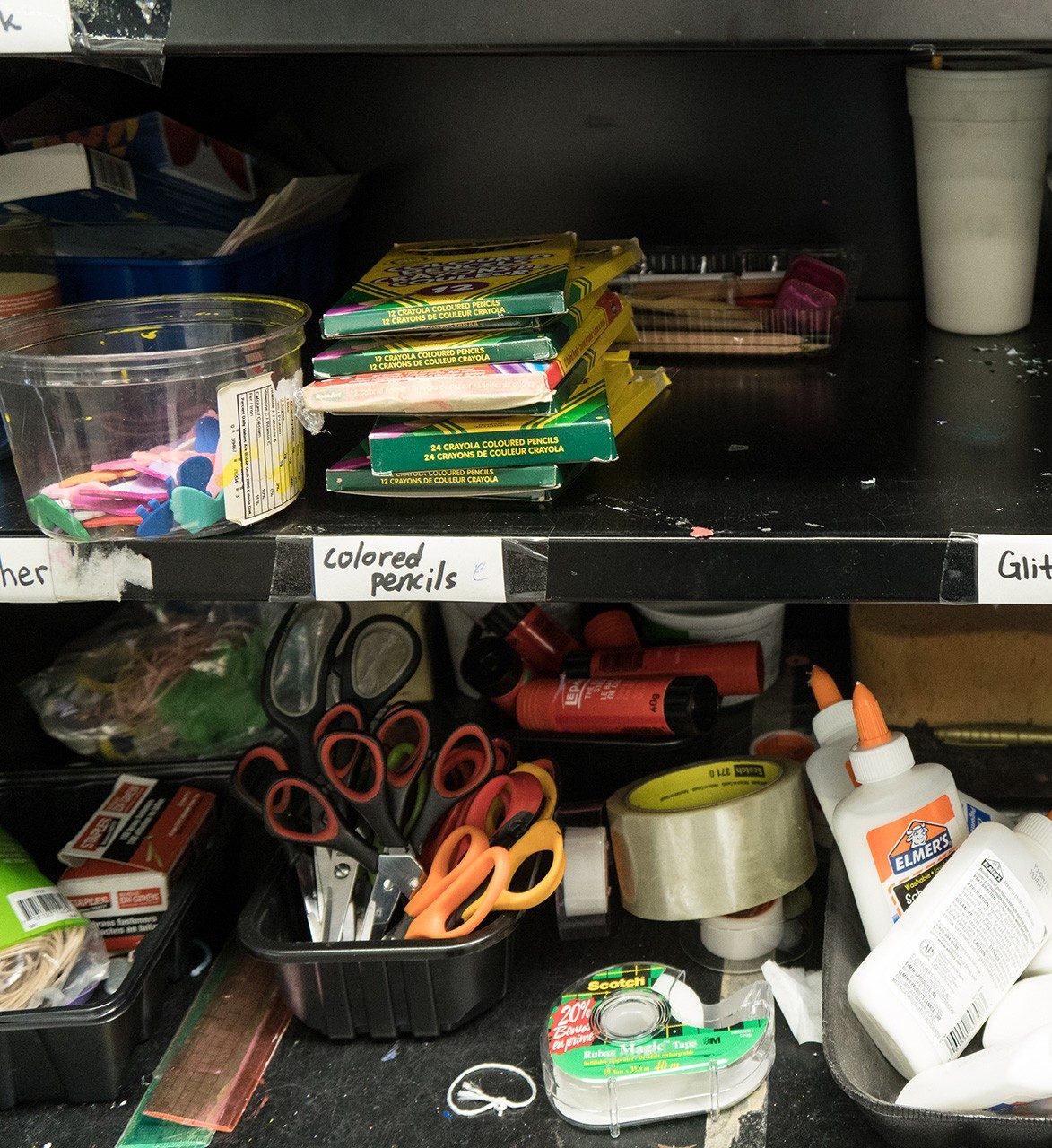
Art Therapy
In the art therapy program, art therapists help people develop new ways of understanding themselves and others through the visual arts and its creative process and practice. The faculty brings a wealth of theory and practical experience as scholars, researchers and registered art therapists. Students benefit from two eight-month-long practicums where you will work directly with clients in conjunction with an on-site supervisor, as well as your departmental supervisor. Montreal provides a myriad of local sites to carry out your practicum, including the Centre for the Arts in Human Development and the Art Hives network connected to Concordia University. Placement possibilities include hospitals and health care institutions, community centres, geriatric facilities, and schools.
Program details How to apply Course sequence
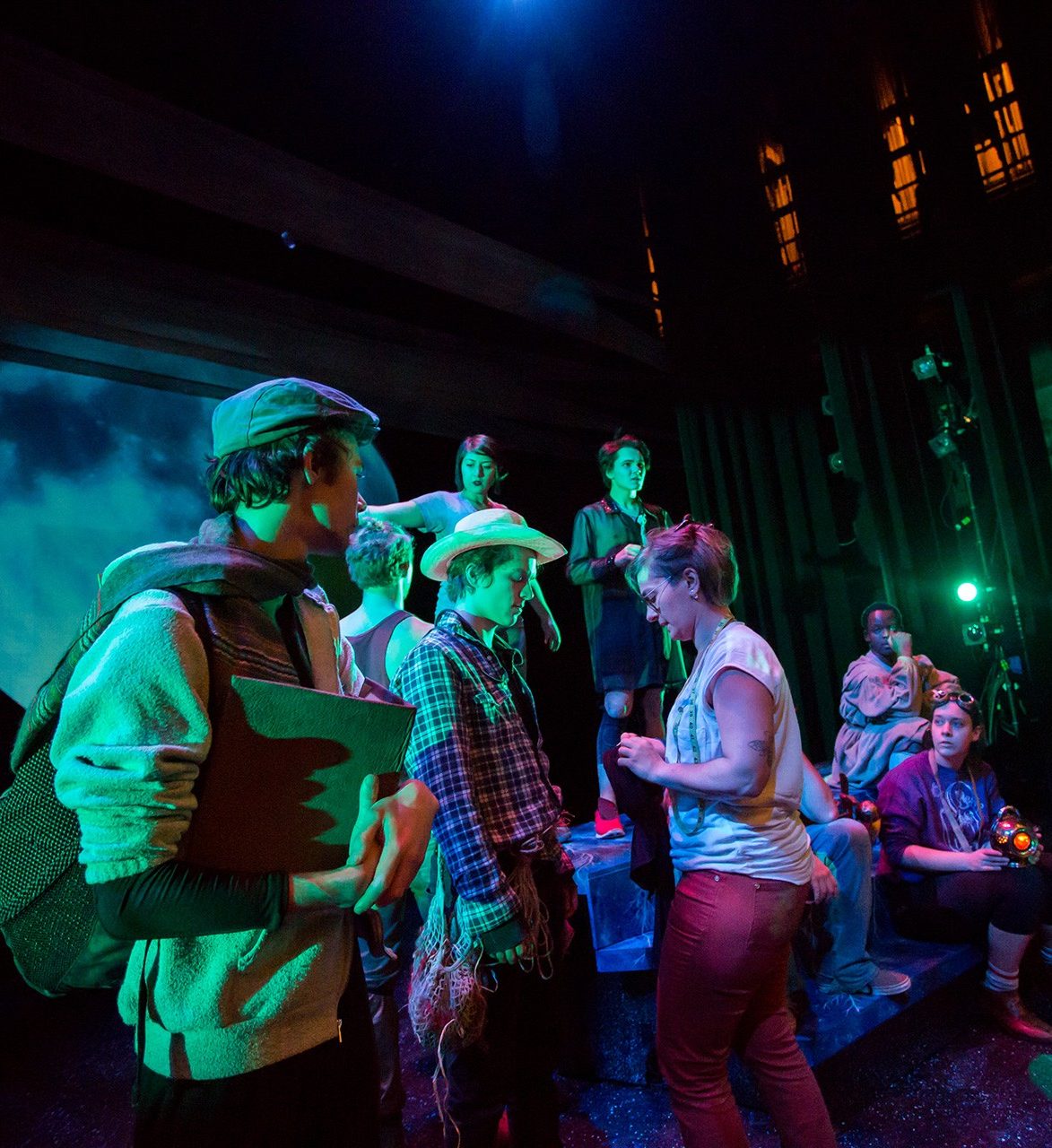
Drama Therapy
Drama therapy is a powerful way to help people work through their feelings, unlock emotions and process trauma. The graduate program in drama therapy provides a way for students with a performance background to engage creatively with the community in a caring capacity. Promoting wellness, drama therapists integrate dramatic and theatrical techniques with other therapeutic approaches to help vulnerable populations—be it in hospitals, schools, community centres, geriatric facilities, outreach centres and beyond.
The program is helmed by award-winning faculty who has a variety of backgrounds, from psychoanalysis to child development and therapeutic theatre productions. Active in their craft, faculty continuously builds their toolkit to train students to promote change in the community at large. There is no rigid methodology in the program, but rather an eclectic approach that remains open to adaptation. Students in our program also benefit by being in the city of Montreal, with its vibrant creative culture. Montreal has a rich selection of local sites for practicums and community interaction.
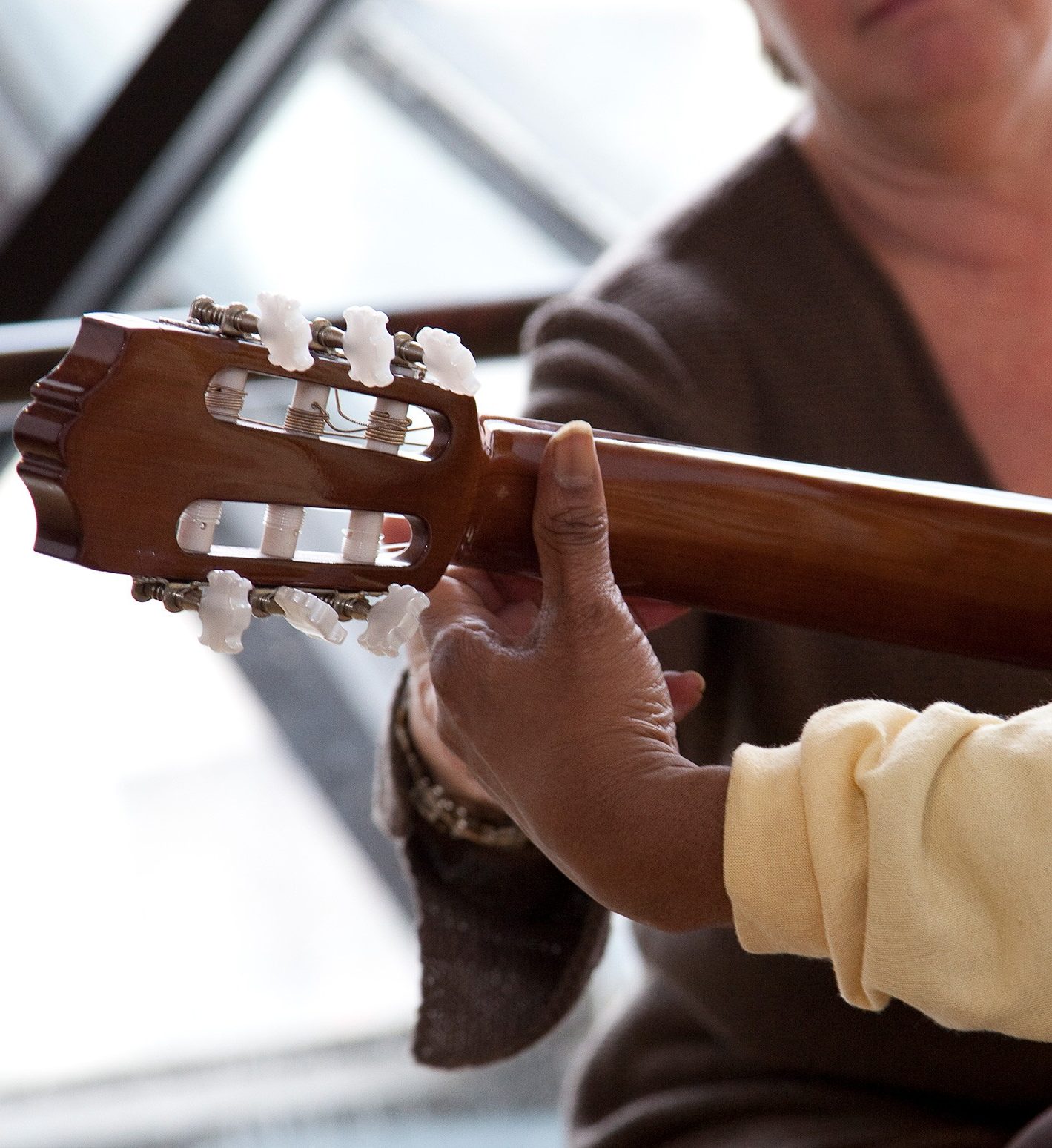
Photo by Anne Renee Hotte
Music Therapy
A music therapist helps clients reach wellness goals by creating musical experiences that foster personal expression and revelation, among other things. Concordia University offers two different graduate programs in music therapy: The Graduate Diploma in Music Therapy and the Master’s in Creative Arts Therapies - Music Therapy, the country’s only online music therapy program. Both programs are approved by the Canadian Association of Music Therapists (CAMT).
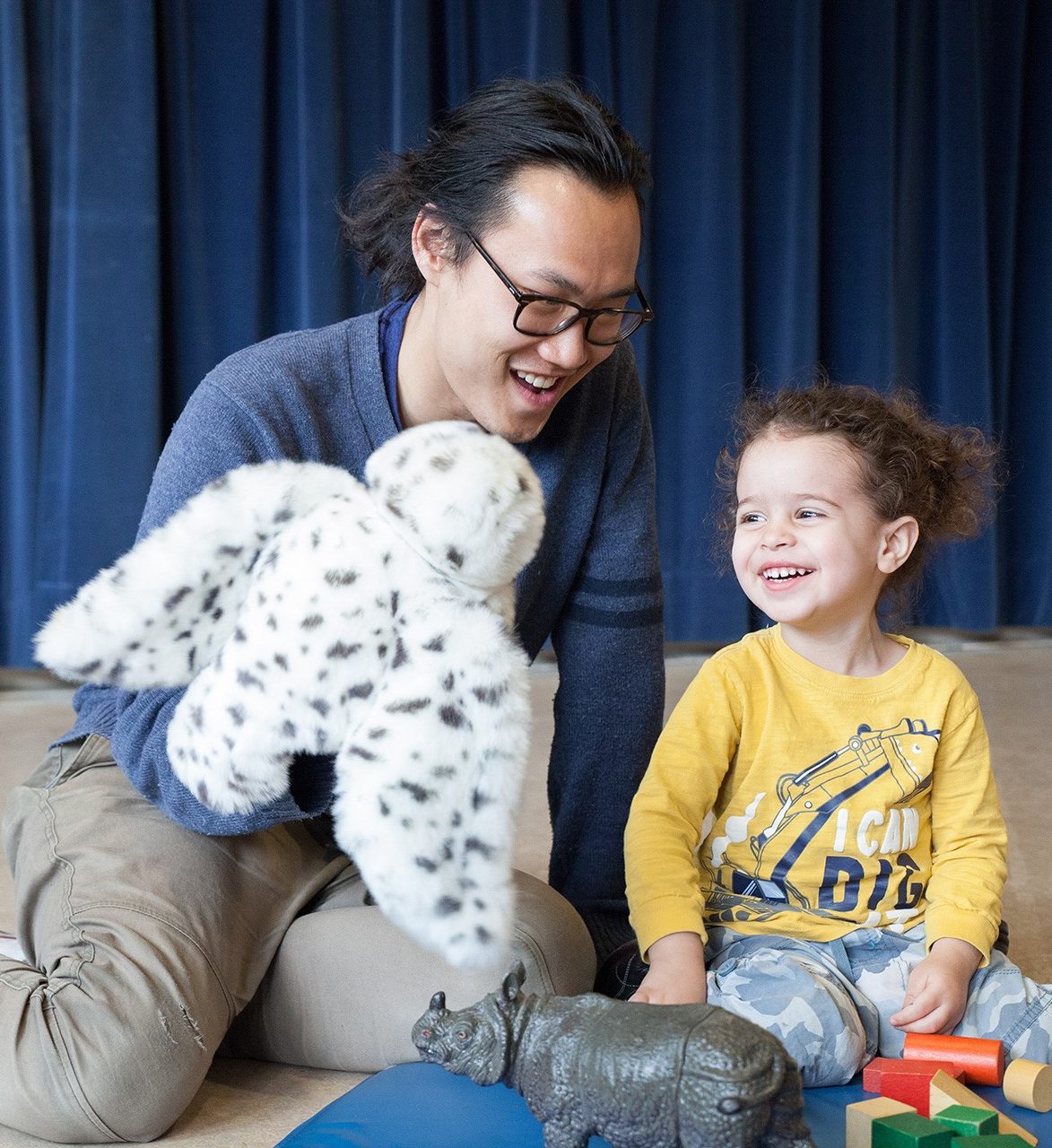
Photo by Eric Tschaeppeler
Play Therapy (Grad. Cert.)
The Graduate Certificate in Play Therapy trains students to intervene therapeutically with children by using a comprehensive multimodal approach. It is unique in that the program offers a practical and hands-on approach to the profession of play therapy. Students work directly with children during their training, participating in supervised play therapy practice sessions.
Deadline for Art Therapy, Drama Therapy and Music Therapy programs: January 15 (for admission in September) *EXTENDED: March 15
Deadline for Play Therapy programs: December 15 (for admission in May)
© Concordia University

- School for the Contemporary Arts

PhD in Contemporary Arts
The SCA’s PhD in Contemporary Arts is a research-intensive program focused on interdisciplinary approaches to the fine and performing arts. The program supports both scholarly and practiced-based research, with students tailoring their degrees to their specific research interests.
Students pursuing primarily scholarly approaches to visual culture, media arts, sound studies, and performance studies will take existing graduate seminar courses and produce a substantial written thesis under the mentorship of leading scholars in their chosen field of study. Practice-based artist-scholars or researchers with a curatorial, programming, or public-facing practice will take a mix of seminars and studio-based courses and directed studies, resulting in the creation of an original artwork or a public presentation supplemented by a substantial written body of work incorporating students’ reflection and commentary.
In all cases, students will be interacting within a lively intellectual and creative environment, in which the exchange of ideas and methods will encourage and enrich both discursive practice and research-creation.
For information about applying to the program, please follow the links at the Future Students section of our site, or scroll to the bottom of this page.
Program Information
Students pursuing the PhD in Contemporary Arts are expected to complete the program in 12-15 semesters (4-5 years). Each student is matched with a potential supervisor, normally upon admission, and the supervisory committee should be formed during the first year.
The program consists of course work, qualifying examinations, a thesis prospectus, and a thesis (scholarly or practice-based), for a minimum of 35 units.
Students complete:
CA 890 – Professional Practices Seminar I (0)
Professional Practices Seminar I
A non-credit course for graduate students working in contemporary arts that foregrounds professional aspects of the discipline. Includes workshops on academic writing, research skills development, pedagogy, proposal and grant writing, peer critique, artistic production and management, academic and public dissemination of work, and presentations of works in progress. Graded on a satisfactory/unsatisfactory basis.
CA 891 – Professional Practices Seminar II (0)
Professional Practices Seminar II
A non-credit course for graduate students working in contemporary arts that foregrounds professional aspects of the discipline. Includes workshops on academic writing, research skills development, pedagogy, proposal and grant writing, peer critique, artistic production and management, academic and public dissemination of work, and presentations of works in progress. Graded on a satisfactory/unsatisfactory basis. Prerequisite: CA 890.
CA 821 – Research Methods in Contemporary Arts (5)
Research Methods in Contemporary Arts
Develops thinking across the media arts in a comparative perspective, synthesizing the historical and theoretical approaches of art history, cinema studies, performance studies, and computer-based media studies. Establishes bases for understanding the relationships among art forms that incorporate reproducible and digital media. Investigates some of the useful emergent methods for making comparisons among media, across history, and across cultures. Students with credit for FPA 821 may not take this course for further credit.
And at least three of:*
CA 811 – Interdisciplinary Graduate Seminar I (5)
Interdisciplinary Graduate Seminar I
Critical study of contemporary issues in the fine and performing arts, with emphasis on concerns common to diverse artistic disciplines and the interaction between art and society. Students with credit for FPA 811 may not take this course for further credit.
CA 812 – Interdisciplinary Graduate Seminar II (5)
Interdisciplinary Graduate Seminar II
Continuation of CA (or FPA) 811. Students with credit for FPA 812 may not take this course for further credit. Prerequisite: CA (or FPA) 811.
CA 813 – Interdisciplinary Graduate Studio (5)
Interdisciplinary Graduate Studio
A selected topics studio course with an emphasis on interdisciplinary artistic projects. Students with credit for FPA 813 may not take this course for further credit. Prerequisite: CA (or FPA) 811.
CA 823 – New Approaches to Visual Art and Culture (5)
New Approaches in Visual Art and Culture
Empire follows Art, and not vice versa as Englishmen suppose. - William Blake, annotations to Sir Joshua Reynold's Discourses (ca. 1798-1809) For WJ.T. Mitchell, pictures have lives and loves. Instead of seeing images as inert objects that convey meaning, he urges us to see them as animated beings with desires, needs, appetites, demands, and drives of their own. In the past three decades, literature on visual culture has burgeoned in art history, cultural studies, critical theory, philosophy and anthropology, and recently it has taken on a "performative turn." For art history, which is traditionally concerned with the interpretation of art objects, the artists who make them and the interests of patrons, the interdisciplinary field of visual culture has opened up new ways of thinking about images of all kinds. In a culture in which the production and dissemination of images has grown exponentially, it has never been more necessary to pay attention to how images work and what they do. While histories of images tend to locate intentionality in the maker or the patron, this seminar seeks to bring forward the intentions of the image, how, for example, its formal material characteristics, modes and contexts of circulation and use, reproducibility and referentiality, solicit responses: how images seem to take on, in Mitchell's words, "lives of their own." For your paper, you can choose as your main object of study a work of art, a landmark exhibition, or a famous image drawn from popular culture. This image or event will be the subject of student presentations at the end of the term. The topic must be a visual phenomenon about which there is a substantial discourse in print, preferably in both scholarly and popular sources. The final paper will be based on your presentation and should address some of the critical issues and readings discussed in class. Students with credit for FPA 823 may not take this course for further credit.
CA 824 – New Approaches in Moving-Images Studies (5)
New Approaches in Moving-Image Studies
Examines what are understood as the arts of the moving image: film, video, and other time based audiovisual media. A survey of emerging approaches in cinema studies relates these developments to the longer history of the discipline and the intermedial art forms that informed it, including theater, public spectacles, photography, painting, music, and sound recording. Additional topics include: how the practice, aesthetics, and reception change when cinema moves to television, both move to digital formats, and all these platforms move to handheld and social media; medium specificity in the moving-image arts in light of "media convergence"; what new forms emerge when moving images shift from the institution of cinema to museum and online contexts; new approaches to national cinemas and documentary; and cognitive and neuroscientific theories of moving images. Students with credit for FPA 824 may not take this course for further credit.
CA 825 – New Approaches in Digital Art Studies (5)
New Approaches in Digital Art Studies
This course will focus on the history and practice of digital art, with an emphasis upon the artistic outcomes of the new methodologies and practices within this field. Digital technology has fundamentally changed the process and products of contemporary creativity in art-making. Although a great deal of contemporary art involves some aspect of digital technology, this course will examine those artists and art-works in which digital technologies play an intrinsic part in the creative process, as well as the realization. A range of processes - from interactive systems through to algorithmic approaches (stochastic, deterministic, chaotic) - will be examined, with particular reference to artistic goals, approaches, and results. Students with credit for FPA 825 may not take this course for further credit.
CA 826 – New Approaches in Performance Studies (5)
New Approaches in Performance Studies
Traces the interdisciplinary origins of performance studies and brings its concepts and methods to bear on dance, music and sound arts, theatre and performance arts, and media performance while introducing cross-disciplinary ideas from emergent areas such as neuroscience, cognitive science, and gaming, for example. Course assignments will involve case studies as forerunners for further research. Students with credit for FPA 826 may not take this course for further credit.
CA 828 – New Approaches to Sound and the Arts (5)
New Approaches to Sound and the Arts
Scholarly research on sound ranges from studies on listening, more-than-human soundscapes, audio media archaeology, sound art, and sonic cultures. These works question and expand upon longstanding issues concerning the onto-epistemologies of sound, the status of the voice, the role of music in everyday life, the politics of sound, and sound's relationship to the imagination and other sensory domains. This seminar will entail an examination of current debates and changing methodologies in sound studies, especially as they pertain to the contemporary arts.
CA 877 – Selected Topics in Fine and Performing Arts (5)
Selected Topics in Contemporary Arts
Study of particular artistic techniques or issues. The topic varies from term to term.
CA 883 – Studio in Fine and Performing Arts I (5)
Studio in Contemporary Arts I
Intensive studio work, concentrated in a particular art discipline, but with opportunity to involve interdisciplinary materials and techniques. Students with credit for FPA 883 may not take this course for further credit.
CA 885 – Studio in Fine and Performing Arts II (5)
Studio in Contemporary Arts II
Continuation of CA (or FPA) 883. Students with credit for FPA 885 may not take this course for further credit. Prerequisite: CA (or FPA) 883.
CA 887 – Selected Topics in Fine and Performing Arts (5)
CA 889 – Directed Study in Fine and Performing Arts (5)
Directed Study in Contemporary Arts
Students with credit for FPA 889 may not take this course for further credit.
CA 892 – PhD Qualifying Examinations (0)
PhD Qualifying Examinations
Qualifying examinations. Graded on a satisfactory/unsatisfactory basis.
CA 895 – PhD Thesis Prospectus (0)
PhD Thesis Prospectus
Thesis Prospectus. Graded on a satisfactory/unsatisfactory basis. Prerequisite: CA 892.
CA 899 – PhD Thesis (15)
Thesis. Graded on a satisfactory/unsatisfactory basis. Prerequisite: CA 895.
* coursework may be substituted in consultation with the supervisor or Graduate Program Chair.
PhD PROGRAM APPLICATION
The SFU Graduate Studies application portal for prospective students is set to open on October 1, 2024.
The SCA's Internal PhD deadline is December 31, 2024.
A COMPLETE APPLICATION REQUIRES
1. Online Application for Graduate Studies.
ALL CANDIDATES MUST COMPLETE AN ONLINE APPLICATION
If you have not submitted the online application, you will not be considered for the program. All graduate program applications are processed through Graduate Studies . In order to use the online application system, you will need to pay an application fee of $90 CAN (students with Canadian transcripts) or $125 CAN (students with international transcripts) by credit card (MasterCard or Visa). The online application includes a checklist of the documents that you will need to submit to us to support your application. This checklist will be updated online as we receive your documents. Please refer to the online checklist to ensure that all documents are received. NOTE: Due to the number of applications, it is not possible for us to monitor every applicant's checklist closely.
2. Official sealed Transcripts of all post-secondary education. Sealed transcripts should be sent directly to the address below by the academic institution. Non-English language transcripts must include an official English translation. (For the purposes of lowering costs, unofficial transcripts may be uploaded to an application for review. If an offer of acceptance is given, all official sealed transcripts will be required.)
Graduate Studies Maggie Benston Student Services Centre 1100 Simon Fraser University 8888 University Drive Burnaby, British Columbia Canada V5A 1S6
3. A Curriculum Vitae .
4. A Research Statement . This two-page document should indicate your academic/artistic background, the nature of your scholarly and/or creative practice, and the faculty members in the School who might supervise your work. It should also include an outline of the doctoral research you wish to pursue in our program, the significance of this research, and the contexts (artistic/scholarly/other) through which you are framing this research.
5. A sample of Academic Writing . Acceptable samples include MA or MFA papers or other academic writing, catalogue essays, published articles, and grant applications.
6. For students pursuing the practice-based PhD option: A Portfolio of your work, including a list which prioritizes the viewing/listening order of materials. You may upload video, audio, images, or PDF documents (less than 10 Mb each). Unfortunately, we are unable to accept physical media (DVDs, CDs, etc.). For works that involve a creation and production team, please make your role (Director, Choreographer, Curator, etc.) clear.
7. Three (3) Letters of Reference from (preferably) academic or professional sources. Letters can be uploaded online directly by each referee. Your referees will receive login information and instructions for uploading their letters once you have named them as a reference. We do not have a template for reference letters; your referees can use their preferred format.
9. International students : English is the language of instruction and communication at SFU. The School for Contemporary Arts requires English proficiency as outlined on the Graduate Studies website . Please note that we must receive test results directly from the testing agency. Copies of documents sent directly by students will not be accepted.
What are the approximate tuition and fees for this program?
This is a rundown of the Fall 2023 fees (they tend to go up a bit each year). The application fee is about $125 CND. If accepted into the program, a deposit of $250 is needed to secure your place. It is a per-term fee schedule, not per-unit. Please note: international students pay the same tuition as domestic students.
These are the Fall 2023 fees in CND:
- U-Pass BC Transit pass Fee: $180.40
- GRAD Student Athletic Fee: $84.94
- GRAD Student Activity Fee: $75.65
- GRAD Student Services Fee: $50.99
- GRAD Tuition (T2202A): $2066.11
- Graduate Graduation Fee: $12.00
- Grad Health Plan Dental: $280.67
- Grad Health Plan Medical: $204.33
- International & US Graduate Students
Fall Total International: $3,224.09+ $75 Per Month BC MSP Health Fee
Fall Total Domestic: *$2,943.09
Spring Total: *$2,458.09 (+ $75 Per month BC MSP Health Fee is only for International Students)
In the Spring and Summer Terms, students are not charged for the Graduate medical and dental plans because they are an annual fee, so roughly: *$2,458.09 CND for the other two terms of the year. Living expenses are separate.
After 6 completed terms of full-time fees in a regular fee master's program, tuition is reduced to half of the full-time fee as the continuing fee.
A completed term is defined as a term a student is not on leave, or has not withdrawn (extenuating or otherwise).
*These are approximate amounts and are subject to change each year.
More details on tuition and fees can be found on the SFU Graduate Studies website .
Do International students in this program pay an international rate for tuition?
International students pay the same tuition rate as domestic students.
Can my application fees be waived?
SFU and SCA are not waiving application fees at this time.
Where can I find information on housing arrangements and costs?
Information on housing can be found here:
- Housing Options
- Off Campus Housing
What kind of funding is provided for incoming SCA PhD students?
Students enrolled in the PhD program in Contemporary Arts are expected to complete the program in 12 to 15 terms. Students in the program will be funded for 12 terms. Students will receive guaranteed minimum funding in the amount of $28,000 for the term of the funding guarantee provided in 1. The School will review the level of minimum funding annually to determine whether the minimum can be increased in consideration of rising cost of tuiiton and cost of living. Continued funding is contingent upon:
- maintaining a CGPA of 3.5 or higher
- satisfactory progress in the program as documented in the annual progress review
- applying for at least one major (>$10,000) award by the end of term 6
- applying to and being available for in-person teaching and research employment at SFU.
Individual student funding packages will be comprised of a combination of awards (including major entrance scholarships), fellowships, teaching assistantships, research assistantships and, where possible, sessional instructorships.
Students can also apply for travel and research funds ($500 – $1500 per annual cycle) over the course of their degree. SCA Travel and Research Awards (TARA) and unrelated arts grants are *not* counted toward the student’s guaranteed funding amount.
Students in the practice-based stream can also apply for limited funding to support the presentation of their thesis projects.
For more information, please read the PhD in Contemporary Arts Minimum Funding Policy (PDF).
Will a Teaching Assistantship position cover some of the 2 additional international health care fees?
Yes. As international students have two additional costs, the SFU Teaching Support Staff Union ( TSSU ) of which all TAs are members, can provide support for these costs while graduate students are working. More details can be found HERE .
What are the Graduate English proficiency requirements?
International applicants will not be required to complete an English-language test if they have completed a degree at an institution where the language of instruction and examination was in English in a country where English is the primary language. All University Graduate English proficiency requirements can be found on the SFU Graduate Studies website .
Do you accept Duolingo English test results?
The Duolingo English Test (DET) has been approved on a provisional basis, effective Summer 2024 through to the Fall 2026. The minimum required score for the DET is 130 overall with a minimum of 120 in each section.
Can I apply if I do not meet all the English proficiency test minimum scores?
All applicants must meet the Graduate English proficiency minimum requirements. Please note, meeting the minimum scores does not guarantee entrance into the SCA grad programs.
Does this program require GRE results?
The SCA Graduate programs do not require GRE results.
Will you look at my CV and Portfolio before I apply to see if I am eligible?
Due to the high volume of applicants, Staff and Faculty are not able to review application materials. The review process is part of the application process.
Do I need to contact and establish a potential supervisor before applying?
Before accepting a student into the program, the School will consider the proposed research in relation to faculty resources in the field. Students will be matched with a supervisor upon admission, so supervisory capacity and fit is an important consideration for us.
Is an interview part of the application process?
Yes, but only if an applicant is selected for an interview. The program selection committee reviews all applications in an initial round of assessment. Successful applicants from this initial assessment are then contacted for an interview.
Will you still accept applications after the deadline?
Due to the high number of applications each year, SCA does not accept applications past the application deadline.
If I am accepted into the program, can I defer my start in the program to the following year?
At this time SCA will not be granting deferrals for starting the following year.
Is there a waitlist for this program?
Yes, we have a waitlist for this program.
How long is this program?
Normally 4 to 5 years.
How many students are accepted into the SCA PhD program each year?
Approximately 3 per year.
Does this program have a Spring or Summer intake?
No. All SCA Graduate programs start in the Fall Term.
Can I transfer course credits into this program from another institution?
No. All course credits for each SCA Grad program are to be taken during the span of the program.
Can I take classes remotely in this program?
No, SCA Graduate courses are in-person only.
What are the COVID-19 protocols for the University?
Please see the SFU Return to Campus Website HERE .
Can I take undergraduate SCA courses for credit in this program?
SCA Undergraduate courses can be taken with permission from the instructor. However, credit for these courses will not count towards your graduate degree. Many students opt to sit in the class or audit the course instead.
Do I need to supply my official transcripts in my application?
For the purposes of lowering costs and saving paper, unofficial transcripts may be uploaded to an application for review. If an offer of acceptance is given, all official sealed transcripts will be required.
Is there a minimum word length or limit for the Research Statement?
The Research Statement should be limited to 2 single-spaced pages in not less than 11-point font, and with margins of at least 2 cm.
How many items should I include in the portfolio?
The average number of portfolio items is 5 to 7. More can be included, but please keep in mind the selection committee will be reviewing a fair number of other applications
Can I provide links to sound recordings and videos in my portfolio?
Yes. It is much easier to review applications where links to sound recordings and videos are provided in a .pdf file. It is best to provide these examples in the order of importance/relevance to your application. If the videos or sound are hosted on a specific artist website, provide a link to the page where the video is rather than just a link to the entire website. Links to other media sites such as Soundcloud, YouTube, Vimeo, etc. are fine also.
Can my references come from non-academic email addresses?
Yes, SCA will consider non-academic references from professionals; however, it is preferred that there is at least one academic referee.
Can I get an un-conditional letter of offer?
It is best to meet the requirements of the University prior to submitting all of the application material. As many official transcripts will not have been received within the application period, a condition of receiving the official transcripts will likely be included in the letter of offer as detailed HERE .
If I am offered acceptance, when should I address any enrolment conditions in the offer letter?
As soon as possible, but definitely by July, before enrolment opens. Many conditions will prohibit enrolment in classes until they have been met.
Will you provide feedback on my application if I’m not accepted?
Due to the high volume of applicants, Staff and Faculty are not able to provide feedback on applications.
Is there an information session for this program?
There is usually an in-person information session each November. For the last couple of years, we have hosted our information sessions online. If you have missed the latest information session you can request a link to the video from the Graduate Program Coordinator at [email protected] .
Projects & Activities
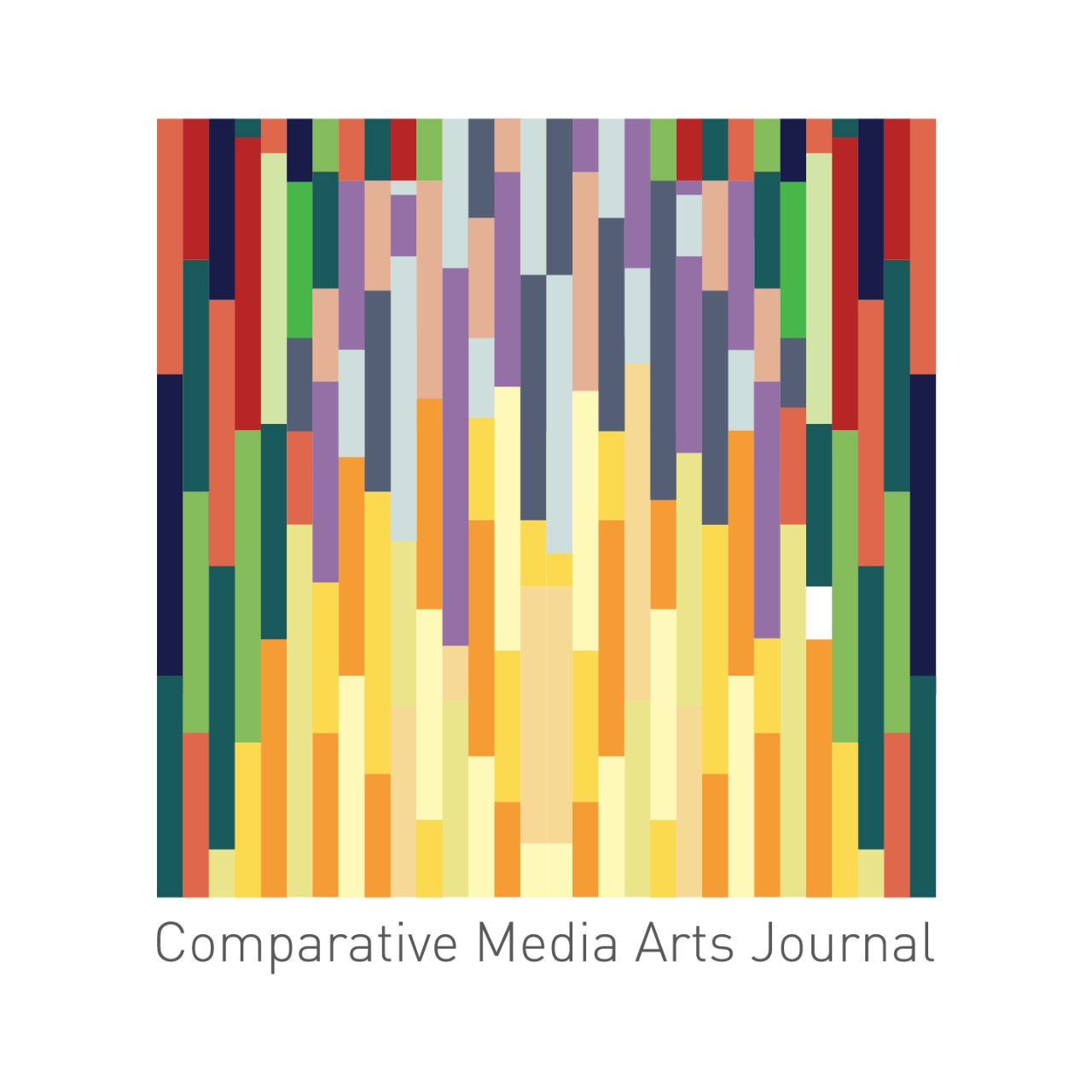
The Comparative Media Arts Journal (CMA Journal)
The CMA Journal is a newly established open-access, student-run, peer-reviewed journal, publishing the best of graduate and postgraduate essays, artworks and experimental content, created and run by SCA MA students. MORE INFO: CMA Journal
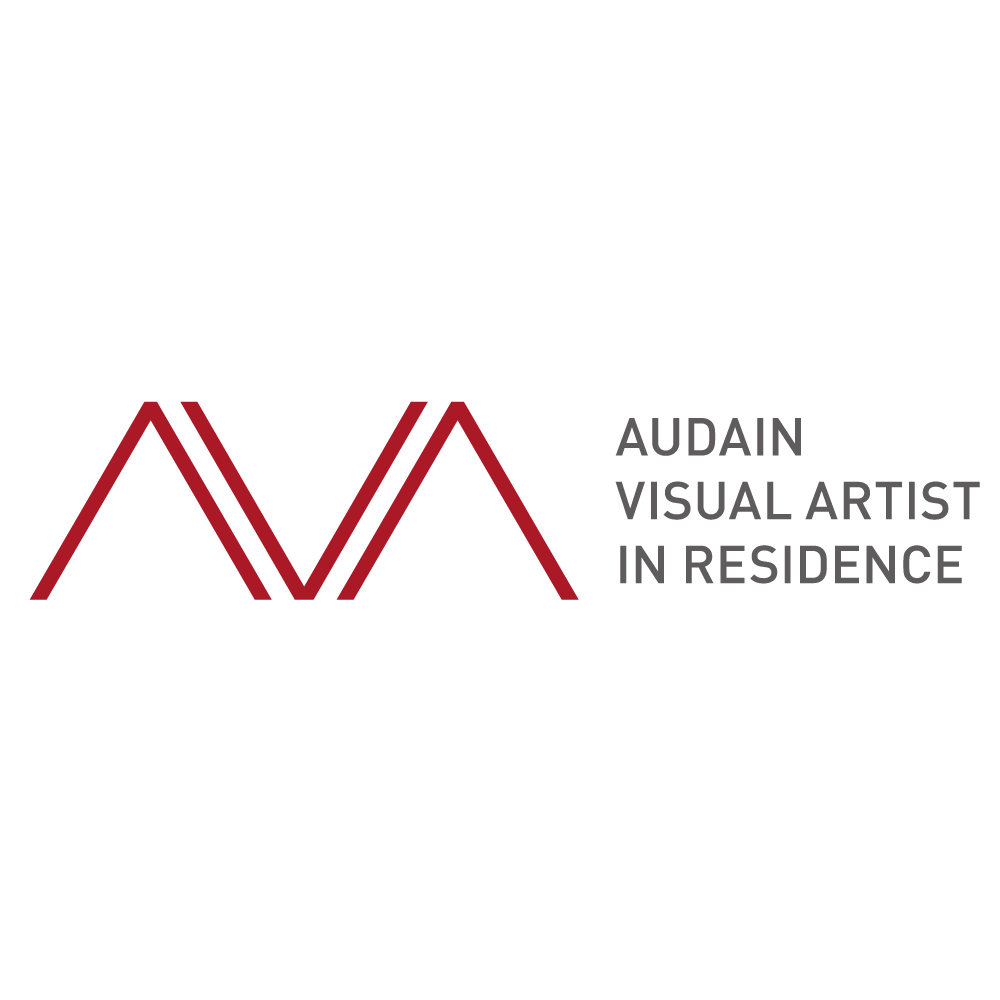
Audain Visual Artist in Residence program
The SCA's Audain Visual Artist in Residence program brings artists and practitioners to Vancouver who have contributed significantly to the field of contemporary art and whose work resonates with local and international visual art discourses. E: [email protected]
For an archive of past Audain Visual Artist in Residence guests, exhibitions, and projects, please click here .
The program is generously funded by the Audain Foundation Endowment Fund.
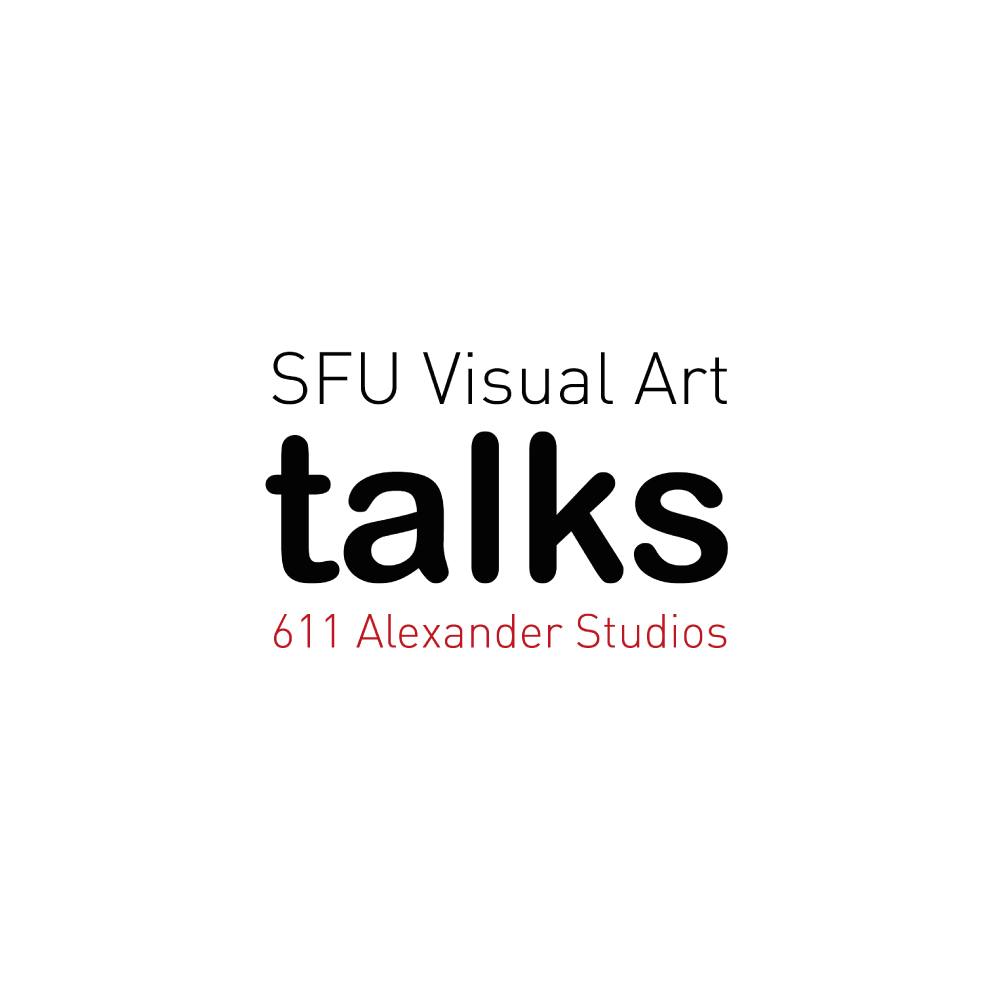
With approximately four talks per term, the free and public 611 Talks series at the Alexander Studios, which is organized by the SCA Visual Art area, features curators, international and local artists, both distinguished and emerging, and other cultural producers presenting on their practices, projects, and ideas. The series is a productive occasion for working artists and students to discuss their methods and concepts and to explore the contexts and theories of contemporary art while also engaging with visual culture in a broader way.
For an archive of past 611 Talks guests, please click here .
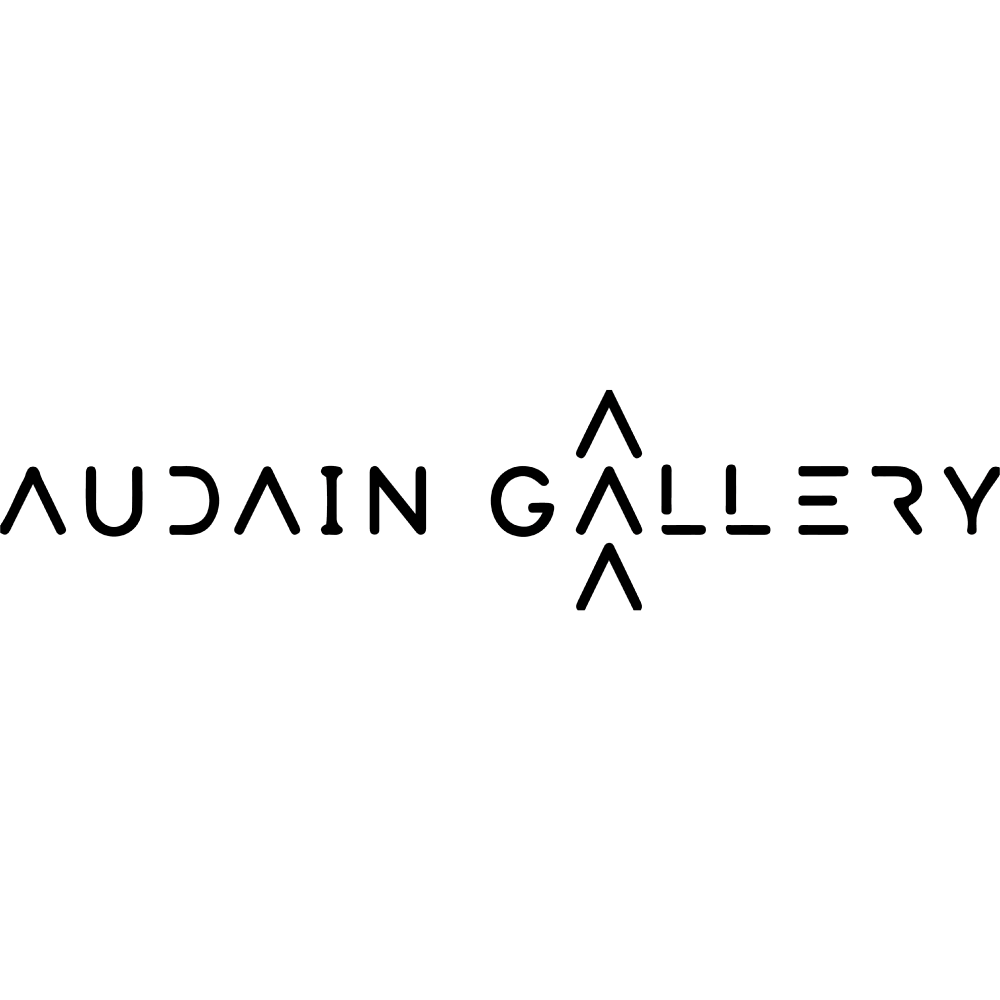
- Audain Gallery
As the location for yearly student exhibitions, SFU Galleries' Audain Gallery at SFU Goldcorp Centre for the Arts extends the pedagogy of the SCA. Through exhibitions, seminars, panels, artist talks, studio visits, and working directly with visiting artists, the programing and activities of the Audain Gallery offer our undergraduate and graduate students a unique opportunity to participate in high-profile, internationally focused and engaged artistic practices.
Audain Gallery Simon Fraser University Goldcorp Centre for the Arts 149 West Hastings Street Vancouver, BC, Canada V6B 5K3 E: [email protected] P: 778.782.9102
For an archive of past SCA exhibitions at the Audain Gallery, please click here .

APPLY TO: PhD in Contemporary Arts
Visit our Graduate information page to find out about the application process and timeline for the SCA PhD program.
Graduate Program Coordinator: [email protected]
Graduate General Regulations
PhD Handbook
SCA Academic Calendar
Community Research Ethics Policy
CMA Journal
Graduate Journal List (updated 2019)
PhD in Contemporary Arts Minimum Funding Policy
Graduate Student Funding Database
Graduate Grants PDF
Gaming Grants PDF
Associations Canada: Search Examples PDF
DANCE FACULTY
Justine A. Chambers
NiNi Dongnier

FILM FACULTY
Chris Chong Chan Fui
Simone Rapisarda
Noé Rodríguez
Nadia Shihab
MUSIC & SOUND FACULTY
Arne Eigenfeldt
Stefan Maier
Mauricio Pauly
Eldritch Priest
Sabrina Schroeder
PRODUCTION & DESIGN FACULTY
Kyla Gardiner
Miwa Matreyek
Wladimiro A. Woyno Rodriguez
Theatre & PERFORMANCE FACULTY
Erika Latta
Ryan Tacata
VISUAL ART FACULTY
Sabine Bitter
Raymond Boisjoly
Elspeth Pratt
Kathy Slade
Jin-me Yoon
ART, PERFORMANCE & CINEMA STUDIES FACULTY
Joseph Clark
Peter Dickinson
Claudette Lauzon
Laura U. Marks
Denise Oleksijczuk
Christopher Pavsek
Current PhD Students & Visiting Scholars
Sca pathways.
SCA Courses
All CA courses list
The doctor of philosophy (PhD) in contemporary arts
- Undergraduate
- Upper & Lower SCA Studio & History / Theory Courses
- SCA Course Offerings
- SCA Internships
- SCA Courses for Non-Majors
- Costume & Prop Shop
- SCA Event Planning
- Room Booking Request Form
- Locker Request - Thank You
- Locker Request Form
- Scholarships, Awards & Bursaries
- SCA Service Awards
- Student Unions
- SFU Student Services
- Music & Sound
- Production & Design
- Theatre & Performance
- Art, Performance & Cinema Studies (APCS)
- Sessional Instructors & Lecturers
- MA Students
- MFA Students
- PhD & Visiting Scholar
- Retired Faculty
- Are We All We Are
- BFA Graduating Exhibition 2019: KNOW YOUR PLACE
- Visiting Scholar Talk: Dr. P. Megan Andrews
- Music & Sound Festival 2019
- Talk: Skeena Reece
- Cole Lewis: 1991
- PPE Waves: A New Normal?
- Fall Grad info sessions | 2022
- What it means for us to be together: Solidarity, Difficult Histories, and Planetary Futures in the work of Jin-me Yoon
- T’uy’t’tanat-Cease Wyss: wa mi íyim ta sḵwalwen-cht ta mén̓men̓-cht / The children make us (or our hearts) stronger
- next time i die
- Black Box 1: Lost Cut
- Book Launch: Re-Choreographing Cortical & Cartographic Maps, by Dr. Henry Daniel
- 611 Talk: Maya Beaudry
- Enceladus Below
- Atmospheres of Inference
- Info Sessions for Spring Undergraduate Practicums and Internships
- FALL 2022 MUSIC + SOUND FESTIVAL
- Screening & Talk: Katie Mitchell
- PLAYBACK HEAD
- Black Box 2: Doppelgänger’s Forest
- SCA Undergrad Info Session
- What Are Our Supports?
- Barbara Adler's Autumn-Winter 2023-24
- The Anatomy of
- A Walk to Meryton
- The Ambassadors
- Projection Playground
- SCA Undergrad Info-Zooms
- Something Sounds Off
- Bedtime Stories
- How to Lift a Curse (Amazing Transformation Video!)
- Ascension | 2022
- Black Box 3: RABBIT HOLE
- Berlin Field School Information Sessions
- short studies
- Small File DIY Web
- Eco-Frequencies
- Holding on to Light
- DreamPrompt
- Screening & Talk: Dimitris Papaioannou
- How to Pitch a Self-Directed Contemporary Arts Practicum
- Live Acts Festival
- Kristin Reeves: Expanded Cinema
- Wanderings in the delta
- Music & Sound Festival 2023
- Audio Production Masterclass with Murat Çolak
- Miniature Multitudes: All the World’s a Tiny Stage
- Skoden Indigenous Film Festival | 2023
- STRANGE JOY
- BFA Project 2023: I’ll be your mirror
- They are the Sweet Memories
- Judith’s Skirts
- PEOPLE TALKING ABOUT SOMETHING AND ALSO NOTHING IN PARTICULAR
- Dream Safely
- Nova Dance: Svāhā!
- Murder in the Editing Suite
- Grad Show ‘23
- To-ing and Fro-ing in my Fourth Dimension
- LAST IMPRESSIONS
- Soft Tongues: a bioacoustic opera
- The 13th Chronicle
- Medicine Weavings in Red
- The New Daydream Imaginary: On the Ethico-Aesthetics of Spontaneous Thought
- Jalal Toufic: The Matrix for AI et Al trilogy
- SCA Course Planning 101 – Fall 2023
- Jami Reimer's MFA Defence: Soft Tongues: A Bioacoustic Opera
- Ultra Violets
- RE-ORIENTATION DAY 2023: PLACE
- Lesbian Dance Theory Party
- SCA Welcome Day
- Kittie Cooper's MFA Defence: the lightest things float to the top
- Janyce Michellod: Talk
- Alexandra Caprara’s MFA Defence: Ultra Violets
- The Emerging Stage IV
- SFU Film Archive: #1 – GENESIS
- Kettle Logic and The Gale Maze
- Germaine Koh: Artist Talk
- Co-Lab 1: In Between
- Small File Media Festival 2023
- Ming Wong | Artist Talk
- The Emerging Stage V
- Douglas Watt's MFA Defence: Obscene Remainder on the Shop Floor
- SKIN AND BONES: A Chapter Four
- Indigenous Paper Making Workshop
- SCA Grad Programs Information sessions
- SCA Spring 2024 Course Planning 101 (First Year Students)
- Co-Lab 2: Ouroboros
- Lauraine Mak's MFA Defence: Units of Measure
- Jess MacCormack's Dissociative Dreams
- Compound Rite
- Lauren Crazybull's MFA Defence: I've Always Been Away
- SCA Open House
- Torien Cafferata's MFA Defence: The Playbox
- Mena El Shazly's MFA Defence: Hyperopia
- Berlin Field School 2024 | Information Sessions
- Slow Social: #2 & #3
- 19,000 Scanned Anal Queefs and Counting
- Cody Tolmie's MFA Defence: An Experience of Uplifting Terror
- Co-Lab 03: 24hrs
- Production & Design Class Works
- Music + Sound Festival | Fall 2023
- Strange Joy: Screening Party
- SCA 1st-Year Film Screening
- Digital Blackout
- Liminal Loop Garden
- Desire Line Sessions: Alumni Talks
- Slow Social #3
- Forms of Resistance: Screening & Discussion
- 611 Talk: Gabi Dao
- Berlin Field School Information Session
- Screenwriting Master Class with Kathleen Hepburn
- Into Existence
- 611 Talk: Gonzalo Reyes Rodriguez
- Reading and Tour with Kathy Slade: Jo Cook & Perro Verlag Books by Artists
- Live Acts Festival | 2024
- SCREENING: Deep Listening: The Story of Pauline Oliveros
- Smallthingy 2024
- Nearly touching the promise
- Safe & Sound
- A Chat With Pros
- The n Games
- Emerging Stage VI
- Skoden Indigenous Film Festival | 2024
- One End to Another
- Waking Up From a Nap
- In the Eye of the Projector
- HAVE YOU BEEN DIAGNOSED WITH MFA OR PHD?*
- sad girls who lie in bed, amongst other films.
- Sister Mother Lover Child
- Javanese Gamelan Concert
- The Music + Sound Festival | Spring 2024
- The Brutal Joy
- Look Both Ways
- SCA Meet and Greet – April Virtual Session
- CA 276 / CA 371 Projects
- White Rabbit Red Rabbit
- Octophonic SFU-Concordia Exchange Concert
- Justine A. Chambers' MFA Defence: The Brutal Joy
- Yani Kong's PhD Defence: A Present Bond: A Theory of Enchantment in Contemporary Art
- SCA Fall 2024 Meet and Greet – May Virtual Session
- Book Launch: Laura U. Marks' The Fold
- Supporting Multilingual Students in the School for the Contemporary Arts
- Shipwreck Scene
- i am black (you have to be willing to not know)
- Fall 2024 SCA Course Planning (Session 1)
- Fall 2024 SCA Course Planning (Session 2)
- Moving Matter I
- Choreographic Lab: Open Showing
- Counter-Cartographies: Reading Singapore Otherwise
- Until the Mountain is covered by the Snow
- Kinesthetic Strike: Futuring in the Middle
- I Could Be Wrong
- Grad Show 2008
- So Crazy It Just Might Work
- Apparitions
- Things Don't Speak Themselves
- I Need All the Friends I Can Get
- Disorientations/Illuminations
- OTHER WORLDS
- The Young and the Repless
- Neither Here Nor There
- Geometry of Knowing Part 4: You Are Here
- FROOT ZALAD
- Mixed Greens
- MFA Graduating Exhibition 2015
- Dear Leader, What I Love . . .
- _ _ _ _ _ _ _ _ _ _ _ _ _ , and a space.
- No Lost Blips
- will today be like yesterday - will yesterday be like tomorrow
- Best Before: Archivised
- Stick in the Mud
- Binding, Breathing, Incorporating
- Between-Spaces
- EVERYTHING MUST GO
- GALLIMAUFRY
- RE:Cover Versions
- Algorithmic Reveries: Artificial Intelligence and the Creative Process
- SCA Welcome Day | 2024
- Of Memory and Association
- Worlds Among Us
- SCA | Quick News | August 2, 2024
- SCA | Quick News | July 26, 2024
- SCA | Quick News | July 19, 2024
- SCA | Quick News | July 12, 2024
- SCA | Quick News | July 5, 2024
- SCA | Quick News | June 28, 2024
- SCA | Quick News | June 21, 2024
- SCA | Quick News | June 14, 2024
- SCA | Quick News | June 7, 2024
- Meet Christopher Outten: From Graduate to Grad Student
- SCA | Quick News | May 31, 2024
- SCA | Quick News | May 24, 2024
- SCA | Quick News | May 17, 2024
- SCA | Quick News | May 10, 2024
- SCA | Quick News | May 3, 2024
- SCA | Quick News | April 26, 2024
- SCA | Quick News | April 19, 2024
- SCA | Quick News | April 12, 2024
- SCA | Quick News | April 5, 2024
- SCA | Quick News | March 28, 2024
- SCA | Quick News | March 22, 2024
- SCA | Quick News | March 15, 2024
- SCA | Quick News | March 8, 2024
- Ogheneofegor Obuwoma: ...to glimpse: African Cinema Now!
- SCA | Quick News | March 1, 2024
- Meet: Kimia Koochakzadeh-Yazdi
- SCA | Quick News | February 23, 2024
- SCA | Quick News | February 16, 2024
- SCA | Quick News | February 9, 2024
- SCA | Quick News | February 2, 2024
- SCA | Quick News | January 26, 2024
- SCA | Quick News | January 19, 2024
- SCA | Quick News | January 12, 2024
- SCA | Quick News | January 5, 2024
- SCA | Quick News | December 15, 2023
- SCA | Quick News | December 8, 2023
- SCA | Quick News | December 1, 2023
- SCA | Quick News | November 24, 2023
- SCA | Quick News | November 17, 2023
- SCA | Quick News | November 10, 2023
- SCA | Quick News | November 3, 2023
- SCA | Quick News | October 27, 2023
- SCA | Quick News | October 20, 2023
- SCA | Quick News | October 13, 2023
- SCA | Quick News | October 6, 2023
- Meet: Kaila Bhullar
- SCA | Quick News | September 29, 2023
- SCA | Quick News | September 22, 2023
- SCA | Quick News | September 15, 2023
- SCA | Quick News | September 8, 2023
- SCA | Quick News | August 11, 2023
- In memoriam: Opal Mclean (1997-2023)
- SCA | Quick News | August 4, 2023
- SCA | Quick News | July 28, 2023
- SCA | Quick News | July 21, 2023
- SCA | Quick News | July 14, 2023
- SCA | Quick News | July 7, 2023
- SCA | Quick News | June 30, 2023
- Conversation / Interview: Lauren Crazybull & Charlene Vickers
- Conversation / Interview: Cody Tolmie & Michelle Sound
- Conversation / Interview: Taryn Walker & Krystle Silverfox
- SCA | Quick News | June 23, 2023
- SCA | Quick News | June 16, 2023
- SCA | Quick News | June 9, 2023
- Meet Carr Sappier
- SCA | Quick News | June 2, 2023
- 2023 FCAT Dean's Convocation Medal: Emma Savić Kallesøe
- SCA | Quick News | May 26, 2023
- SCA | Quick News | May 19, 2023
- SCA | Quick News | May 12, 2023
- SCA | Quick News | May 5, 2023
- SCA | Quick News | April 28, 2023
- SCA | Quick News | April 21, 2023
- SCA | Quick News | April 14, 2023
- SCA | Quick News | April 7, 2023
- SCA | Quick News | March 31, 2023
- SCA | Quick News | March 24, 2023
- SCA | Quick News | March 17, 2023
- SCA | Quick News | March 10, 2023
- SCA | Quick News | March 3, 2023
- SCA | Quick News | February 24, 2023
- SCA | Quick News | February 17, 2023
- SCA | Quick News | February 10, 2023
- SCA | Quick News | February 3, 2023
- SCA | Quick News | January 27, 2023
- SCA | Quick News | January 20, 2023
- SCA | Quick News | January 13, 2023
- SCA | Quick News | January 7, 2023
- SCA | Quick News | December 16, 2022
- SCA | Quick News | December 9, 2022
- SCA | Quick News | December 2, 2022
- SCA | Quick News | November 25, 2022
- SCA | Quick News | November 18, 2022
- SCA | Quick News | November 11, 2022
- SCA | Quick News | November 4, 2022
- Zan, Zendegi, Azadi
- SCA | Quick News | October 28, 2022
- SCA | Quick News | October 21, 2022
- SCA | Quick News | October 14, 2022
- SCA | Quick News | October 7, 2022
- SCA | Quick News | September 30, 2022
- Sam Mason on Cinelab
- SCA | Quick News | September 23, 2022
- Matthew Toffoletto: Music on Main performs Wolfe, Schroeder’s Stircrazer I
- SCA | Quick News | August 28, 2020
- Welcome: Mauricio Pauly, Assistant Professor
- SCA | Quick News | May 1, 2020
- Congratulations and Goodbye, Sky Hopinka!
- Sky Hopinka wins 2020 Guggenheim Fellowship
- SCA Alumni at Images Festival
- DEBBY FRIDAY goes to Bass Camp
- Judy Radul's Show Support
- Revisioning Music History Education
- Congratulations, Roxanne Charles
- Jennifer Aoki is in the SCA Alumni Dance Lab
- Past Events
- Goldcorp Centre for the Arts Production and Event Services
- SFU’s Vancity Office of Community Engagement
- SFU Woodward's
- SCA News Submissions
- News + Events E-List Sign-up
- VISUAL ART FORUM
- Berlin Field School
- Comparative Media Arts Journal
- Desire Line Sessions
- Institute for Performance Studies
- Iris Garland Guest Artists
- The Precursor Lab
- Skoden Indigenous Film Festival
- Streaming Carbon Footprint
- Faculty Resources
- Message from the Chair
- Alumni News
- Alum Profiles
- Technical Staff
- Job Opportunities
- Visual Arts Photos
- Virtual Tour
- Administration
- Events Calendar
Speakers' Series
- Share Your News
- Future Students
- Current Students
- Subject Areas
- Undergraduate Courses
- Module Checklists
- Western Academic Calendar
- Frequently Asked Questions
- Scholarships and Awards
- VASA : Visual Art Supporters Association
- Degrees Offered
- Graduate Courses
- Graduate Internships
- Meet Our Grads
- Faculty Research
- Graduate Research
- Undergraduate Research
- Indigenous Artist-in-Residence
- Visiting Scholar Program
- Centre for Sustainable Curating
- Cohen Exploration Lab & Cohen Commons
- Drawing & Painting
- Media Lab & Sound Booth
- Photography
- Printmaking
- Sculpture Studio
- Installing Artwork in the VAC
- Visual Resource Centre
- Faculty & Staff Resources (requires login)
- Room Booking
- Student Tutorials
ArtsGear Sign-Out
- Current Exhibitions
- News & Events
- Undergraduate
- PhD in Art and Visual Culture
Graduate Programs
- MA in Art History and Curatorial Studies
- MFA in Visual Arts
- Completed Theses
Program Assistant Parveen Grewal 519-661-2111 x83440 [email protected]
Graduate Chair Christof Migone [email protected]
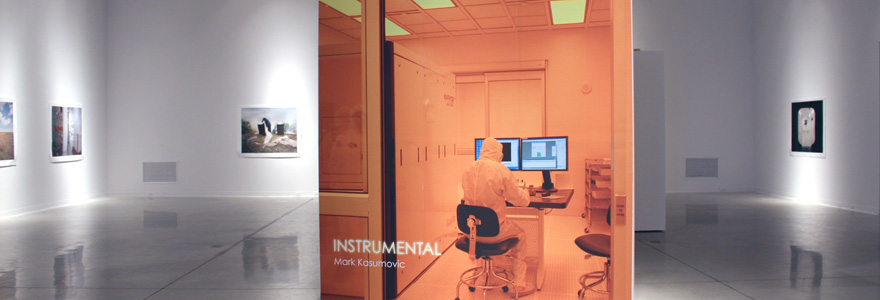
Requirements:
• Admission to the Ph.D. program requires either an M.A. in art history, visual culture or curatorial studies or an M.F.A. or M.V.A. with an average of at least 80% (A-).
• Students with equivalent qualifications in relevant visual fields such as film or media studies may also be considered.
• Students must submit a completed application form, a statement of their research interests, and samples of their work. In the case of art history or museum & curatorial students this will likely be a sample term paper, thesis chapter or publication. In the case of studio students this would consist of photographic, video or digital documentation of their studio practice as well as a writing sample.
• Applicants do not have to secure a supervisor in advance of submitting an application, but they should include sufficient information about research plans to enable the program to identify possible supervisors.
Documentation Required:
• To support your application, you must upload one unofficial academic transcript from each post-secondary institution attended. If the transcript and degree certificate are not in English, a certified translation must also be included. (Non-English transcripts from institutions within Canada do not require a translation.) If you are offered a spot in our program, you will be required to submit to the School of Graduate and Postdoctoral Studies hard copy official transcripts from each postsecondary institution attended.
• Two letters of reference. Applicants are required to enter the names and contact information (including e-mail address) of their referees into the online application. Once the application is processed, the referee will receive a request via e-mail to complete an electronic recommendation form on the applicant's behalf. A link to the form will be included in the e-mail. The referee will receive a reminder in two weeks if the recommendation is not received. The applicant will receive an e-mail when Western receives the referee's letter of recommendation.
• A well considered statement of intent regarding the applicant's work in art history, museum & curatorial, visual culture, or visual arts. The statement of intent should outline your background preparation for the PhD and indicate how you view the direction of your work. Also consider how Western's program could facilitate your goals. Suggested length of 1000-2000 words.
• English Proficiency Test Click here for information about accepted English Proficiency tests.
• Current CV
For Art History and Museum & Curatorial Applications:
• Two samples of written work, normally essays or articles in your area of study.
For Studio Applicants:
• One writing sample of at least 2000 words.
• Twenty images representing, as far as possible, a body of work, accompanied by a list indicating date, title and medium; or items that illustrate multidisciplinary work (e.g. performance) such as installation documentation, scripts, video, audio, photographs, websites, etc., accompanied by a description of the work.
Guidelines for Submitting Digital Images:
• Supporting materials (including statement of intent, writing sample, CV, images, videos, etc.) must be submitted through SlideRoom.com after November 1. Do not send materials to the department.
• Access to SlideRoom will open November 1st. Applicants may upload images (jpg, png, gif) or video (mov, wmv, flv, mp4), music (mp3) and one PDF document. For good image quality and fast upload, your image files should be sized around 1024 x 768px @ 72 dpi. Please keep video files under 120MB each and 2 - 3 minute clips. Our SlideRoom portal offers additional instruction for submitting your work. For technical assistance, contact [email protected] .
• SlideRoom will allow you to log in and edit your portfolio as much as you like; however, once you click on the submit button, you will no longer be able to make changes. REMEMBER you must click the submit button if you want us to review your portfolio, unsubmitted or pending portfolios will not be reviewed. A $12 USD fee will be charged at the time of submission. Please note that there are several programs listed at our SlideRoom portal; it is very important that you upload your images into the correct program that you are applying for.
• Occasionally, art history applicants do submit visual material (for example, curatorial images). If this is the case, please submit images through SlideRoom.com .
Further Information:
All applications are due by January 15 . Applications open October 1 and must be submitted online through the School of Graduate and Postdoctoral Studies. You can find more information about applying to Western University here .
Supporting materials (i.e. images, videos, etc.) must be submitted through SlideRoom .
There is a $150.00 application fee (payable through the online application process). Unfortunately, we cannot grant waivers for the application fee.
For detailed information about the structure of the degree click here .
For further admission information including the link to the application click here .
Meet PhD Candidate Ruth Skinner
Department of Visual Arts John Labatt Visual Arts Centre London, Ontario, Canada, N6A 5B7 Tel: (519) 661-3440 [email protected] Privacy | Web Standards | Terms of Use | Accessibility
Meet our Faculty
Visual Resource Library
Find Images

About Art Therapy
- Find an Art Therapist
- Become a member
- Member Login
Ethics and Grievances
Constitution and Bylaws
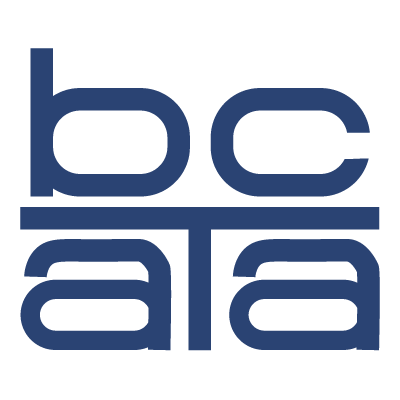
Art Therapy
What is art therapy.
Art Therapy combines visual art and psychotherapy in a creative process using the created image as a foundation for self-exploration and under-standing. Thoughts and feelings often reach expression in images rather than in words. Through the use of art therapy, feelings and inner conflicts can be projected into visual form. In the creative act, conflict is re-experienced, resolved and integrated.
Art therapy can be used with individuals, groups, or families as either a primary or adjunctive therapeutic mode in clinical, educational and rehabilitative settings. People of all ages can benefit from art therapy and previous art experience is unnecessary as the focus is on personal expression.
The BCATA is committed to upholding high standards of professionalism and ethical integrity in the delivery of art therapy services to the public. We encourage members of the public who are seeking a professional art therapist to choose one who is a Professional Member or Registered Professional Member with BCATA or another professional art therapy association that operates on clear criteria and standards for professional training and registration, and has an established Code of Ethical Conduct and an Professional Ethics Committee that upholds those standards for its members. Members of the public are also encouraged to select an Art Therapist who can verify current professional liability insurance.

Distance Learning Program
Overview & Curriculum
Prerequisites & Apply
Testimonials
International Info
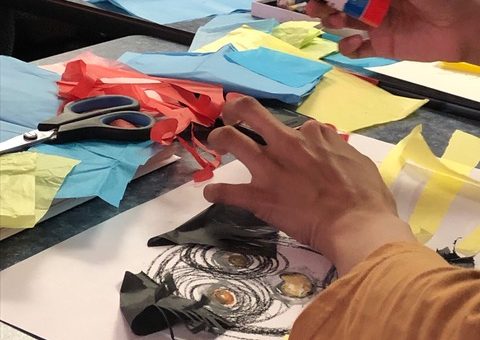
For people living further away from Toronto, we offer a Graduate Level Diploma in Art Therapy Distance Learning (DL) Program. While the majority of the program is delivered online, it includes 176 hours of mandatory in-person, on-campus classroom learning through two 2-week intensive semesters.
As with the onsite program, the DL program includes 3 components: 16-months of accelerated full-time coursework, 700 hours of practicum, and a research project (thesis or practice-based major project). Students have up to two years after the last date of coursework to complete the practicum and research project components. Typically, the full program takes approximately 2-3 years to complete.
Most courses in the DL program are delivered asynchronously through an online learning platform, where students access weekly course materials and participate in learning through recorded lectures, videos, readings, discussion forums, and sharing of reflections and artwork. A number of courses are delivered synchronously via Zoom, including the Group Art Therapy Experiential course throughout the 16 months of coursework.
Both onsite and distance learning programs at TATI are cohort-based. This means that each cohort of students progress through the 16 months of coursework together.
The DL program is offered once per year (January start date), and we accept 10 students per DL program cohort.
Through a curriculum that includes a wide range of topics, we offer training for students to integrate art practices with theories and skills in psychotherapy with individuals, groups, adults, children, youth, older adults, couples, families, and diverse communities.
The TATI curriculum is delivered by art therapists, mental health practitioners and scholars with a diversity of experiences and outstanding contributions in their fields, as well as a shared commitment to ethical practices and social transformation in therapeutic arts-making. The program emphasizes arts-based collaboration and self-reflexivity in practice and research, grounded in critical reflection and application of theories. Students and the teaching team (instructors, supervisors, research advisors) actively co-create supportive learning environments both in the classroom and in the field, engaging in knowledge production and capacity-building that foster professional advancement, personal growth, as well as contribution to community well-being.
The TATI Graduate Level Diploma in Art Therapy Programs are recognized by the College of Registered Psychotherapists of Ontario (CRPO) for both the academic and clinical experience (practicum) components. Completion of the TATI program meets the education requirement for registering with the CRPO. Please see here for further information on CRPO application and registration requirements.
TATI is also an approved training program by the Canadian Art Therapy Association (CATA) . Students may join CATA for student membership. Graduates from TATI may apply for professional membership. With the completion of additional requirements, professional members may also apply to become registered members of CATA. For more information about CATA membership types please see the association’s website .
Residency: Distance Learning students must be residing in Canada for the duration of the program due to limitations with providing liability insurance for practicum placements outside the country. The Distance Learning program is intended for students who live at least 100km from our campus in Toronto or who cannot attend Saturday classes for religious reasons.
International students : At this time, we are regrettably not able to accept applications from international applicants. For more information please see the notice below – https://tati.on.ca/distance-learning-program/#InterInfo
Distance Learning students are responsible for securing their own transportation to and accommodations in Toronto, and the costs of these, for the onsite intensive semesters.
Info Sessions:
Online information sessions are held before each admissions period and are hosted by TATI instructors, practicum staff, and administrators to share information about art therapy, the TATI program, and application process, and to answer questions.
Past Info Session:
January 2025 program admissions Friday May 10, 2024 12:00-1:30 ET via Zoom
If you missed the info session for January 2025 admissions, please feel free to reach out to us over email at [email protected] with your questions. The next info session will be held in early 2025 ahead of the admissions period for September 2025 onsite program admissions. Please check back closer to then to register to attend.
Distance Learning Curriculum
For further details including course descriptions, please see the Distance Learning Program Calendar .
In order to access TATI’s remote learning platform and join classes via Zoom, students need to have stable internet connection, a computer with camera and microphone, a camera or mobile device to photograph artwork, and preferably a private space and headphones for attending class (required for Group Art Therapy Experiential to ensure confidentiality for all classmates). Students will also need to have Zoom installed on their computer or device. For more details about using Zoom, please see the Zoom New User Guide .
- Group Art Therapy Experiential
- Theories and Ways of Knowing in Psychotherapy Practices
- Practicum Preparation
- The History and Development of the Profession of Art Therapy
- Ethics and Art Therapy
- Principles of Group Therapy Process
At TATI in Toronto, over 11 days (Monday to Friday, Sunday to Friday)
- Introduction to CBT and DBT in Art Therapy
- Trauma-Informed Art Therapy (Part 1)
- Art Therapy with Older Adults
- Medical Art Therapy
- Advanced Studio: Therapeutic Puppetry
- Art Therapy and Mindfulness
- Cultural Humility and Art Therapy
- Child and Adolescent Development and Art Therapy
- Art Therapy and Mental Health
- Art Therapy, Spirituality, Grief and Loss
- Art Therapy in Diverse Settings
- Trauma-Informed Art Therapy (Part 2)
- Family and Couple Therapy
- Indigenous Issues, Health and Art Therapy
- Research Methods in Art Therapy
- Art Therapy Assessment Methods
- Advanced Studio: Eco-Art Therapy
- Digital Art Therapy
- Art Therapy for Eating and Body Image Concerns
- Group Clinical Supervision
- Advanced Studio: Art Hives
- Public and Private Practice in Art Therapy: Finding, Attaining & Creating Employment as an Art Therapist
*subject to changes for each cohort – this is to give a general idea of semester dates for the Distance Learning program.
| January to April One week break in March Asynchronous instruction via an online learning platform, with some live components over Zoom. | |
| Early/mid May Monday-Friday of week 1 and Sunday-Friday of week 2, classes 9:30am-6:30pm (one hour lunch break each day). |
| July/August to November One week break in late Aug/early Sept Asynchronous instruction via an online learning platform, with some live components over Zoom. | |
|
| December to April Two breaks: one week in December, one week in March Asynchronous instruction via an online learning platform, with some live components over Zoom. |
| Late April Monday-Friday of week 1 and Sunday-Friday of week 2, classes 9:30am-6:30pm (one hour lunch break each day). |
Tuition and Fees
Tuition Fee: The total tuition for the program is $18,800.00.* Tuition is paid in four installments, each in the amount of $4,700. Tuition payments are due at the beginning of each 4 month quarter of the 16 months of coursework. * The above tuition fee amount is effective as of January 2025. It does not affect the tuition fee for students enrolled/beginning program sooner than January 2025.
Thesis/Major Project Advisement Fee: An additional fee of $1,300.00 is required when students begin their thesis or major project, usually at the end of coursework.
Program Extension: The completion due date of all practicum hours and the thesis or major project is 2 years from the last day of semester 5. If students do not maintain contact with the program and progress in practicum and/or thesis/major project after coursework, and the two-year completion due date has passed, the student will be recorded as inactive in the program. If at or after this time the student would like to continue practicum and/or thesis or major project, they must pay a fee of $200 in order to reinstate their active student status in the program. For details please see Current Student & Alumni .
The Toronto Art Therapy Institute is registered as a career college under the Ontario Career Colleges Act, 2005 and receives no government funding. Tuition fee paid is eligible for the T2202 tuition certificate.
We are not registered with the Ontario Student Assistance Program (OSAP).
Important Dates
The application periods for September 2024 and January 2025 admissions are now closed. The application deadlines for our next round of admissions will be announced in the fall or in early 2025.
Due to our review timeline and process we do not accept late applications . Incomplete applications are kept on file for one year and can be transferred over for completion during another admissions period within the year, by request.
Prerequisites and Application Process
- A major, minor, or courses taken in fine or studio arts is highly preferable.
- A major, minor, or courses taken in relevant areas of studies relating to the care profession or human services is highly preferable, such as psychology, equity studies, social work, child and youth studies, disability studies, education, and health studies.
- If bachelor’s degree is not in one of the above areas of studies, professional or volunteer experiences in support or facilitation roles in mental health settings, social services, or community-based programs will also be considered.
- Must have consistent and ongoing engagement with arts-making through academic, professional, personal, or community-based practices.
- Applicant opens an applicant file with us by completing the application intake form (purple button on this page → “click here to open an applicant file with us.”) . This form can be completed anytime. Please open a file with us before having any application related documents sent in.
- Applicant submits all required application documents (please see next section below) and application fee by the specified deadline.
- The admissions committee will review all completed applications.
- Shortlisted candidates will be contacted for a virtual interview with the admissions committed.
- Admission decisions will be communicated to all applicants at least two months before the program start date.
1. Official academic transcripts
Electronic copy of the official transcript(s) emailed to us directly from the academic institution(s) or via a secure third party service (e.g. MyCreds) to [email protected] . If an e-copy is not available, please have your transcript(s) couriered to our office at 8 Prince Arthur Avenue, Suite 200 (2nd Floor), Toronto ON, M5R 1A9.
If you are currently in the final semester of your bachelor level degree and your transcript does not yet list a degree conferral/graduation date, we also require a letter emailed to us directly from your university’s registrar’s office or from a departmental academic advisor to confirm your completion or imminent completion of all requirements needed to graduate. If this applies to you, please note that you will be required to have an updated transcript with graduation date sent to us prior to enrollment/program start if you are offered admission.
If your degree was completed outside Canada, the United States, or the United Kingdom, we require a degree equivalency certificate from an organization such as WES or ICAS . If your original transcript is in English, a simple degree equivalency certificate along with the original transcript is enough. If your original transcript is in a language other than English, please select the “course-by-course” analysis/translation service. Transcripts from academic institutions outside of the above countries without equivalency certificates/ course-by-course translations will not be processed.
If English is not your first language and you have not previously completed post-secondary studies with English-language instruction, please provide English proficiency test results.
2. Three reference letters:
Two professional and/or academic reference letters from individuals who can comment on your suitability for art therapy training and practice from the perspective of a supervisory role in relation to you, the applicant.
One character reference letter from an individual who can comment on your suitability for art therapy training and practice, but is not a family member or close friend.
All three letters must be signed and emailed to us directly from the individuals writing the letters. Please have your reference letter writers complete the following linked PDF reference form and email it to [email protected] .
3. Statement of Interest:
- Describe how your lived experiences contribute to your interest in pursuing art therapy as a profession.
- Describe how your education, professional training, and/or volunteer involvements might prepare you for training in art therapy.
- Describe why you wish to pursue art therapy training specifically at the Toronto Art Therapy Institute.
Maximum 5 pages double-spaced.
4. CV or resume
Applicant’s up-to-date CV or resume.
5. A portfolio of your artwork
- 10 images of artwork created by the applicant, and selected to demonstrate ongoing engagement with arts-making, personal creative and reflective process, and range of medium.
- Include a brief statement for each image in regard to your reflections on the creative process and the image.
Please combine all images into one PDF file with the statements (other file formats not accepted).
TIP: Canva is a free online tool with which you can create compositions of images and text, and save as a PDF: https://www.canva.com/
6. Signed PDF application form
Click the “Download the PDF Application Form” button on this page to access the form. It is a fillable PDF.
7. Non-refundable $180.00 CAD Application Fee
Applicant will receive payment instructions when the application file is opened. Application will not be processed unless all documents are received and application fee is paid by the specified deadline.
Please begin by opening an applicant file with us by filling out the application intake form (purple button on this page → “click here to open an applicant file with us”) . This form can be completed anytime. Please open a file with us before having any application related documents sent in.
Transcripts and reference letters can be submitted up to two months in advance of the application deadline.
All remaining documents must be sent to us by the applicant, in a single email with the subject line Application: First name Last name to [email protected] , within the specified application window.
Please do not combine all the application items into one file. We require each document as a separate file for our processing system.
Application period opening and closing dates for 2024/2025 programs are as follows:
|
|
|
|
| On-Site Program – September 2024 start | February 1, 2024 | February 15, 2024 by 12pm ET (noon) |
| On-Site Program – January 2025 start | May 31, 2024 | June 14, 2024 by 12pm ET (noon) |
| Distance Learning Program – January 2025 start | May 31, 2024 | June 14, 2024 by 12pm ET (noon) |
Prospective applicants may open an application file with us at any time by completing the application intake form (purple button on this page, “click here to open an applicant file with us”) .
Reference letters and transcripts can be submitted up to two months ahead of the application deadline, after the applicant has opened a file with us. Main application packages are accepted during the two-week application window for each corresponding program start date, as detailed above. All application documents and payment of the application fee must be received by 12pm (noon) ET on the application period closing date in order for the application to be processed.
Thanks so much for everything… I am currently making a living as an art therapist at 6 different worksites (including groups and individual sessions with people with addictions, brain-injured clients, survivors of domestic violence, children and teens who have witnessed domestic violence, and people with severe mental illness) and I am always looking to expand my practice — I am currently proposing seniors groups at the various local retirement homes. I’m working in Lindsay, Sutton, Port Perry and Port Hope. I cannot tell you what a difference my time at TATI has made in my life, and how grateful I am to you, and to all my instructors and supervisors. I am so proud to say that I am an art therapist. In 2013 The Ontario Ministry of the Attorney General awarded me a Victim Services Award of Distinction for textile art project with survivors of domestic violence in Kawartha Lakes.
Annalisa Danowski DTATI
Read more student testimonials.
International Students
Important update: tati is not able to accept applications from international applicants until further notice, due to a federal government decision in january 2024 regarding the cap on international study permits. for more information please click here to read our notice., language requirements:.
If you apply to either the On-Site or Distance Learning programs at TATI, TATI reserves the right to request a successfully completed language proficiency test. Language test scores are reviewed in combination with academic credentials to determine your admissibility to TATI.
You may meet our English-language requirements if you have successfully completed one of the following:
TOEFL: Test of English as a Foreign Language
- Computer: 220
IELTS: International English Language Testing Service
- Score in Academic: 6.5
Degree Equivalency Certificate
If your degree was completed outside Canada, the United States, or the United Kingdom, we require a degree equivalency certificate from an organization such as WES or ICAS. Transcripts from academic institutions outside of the above countries without equivalency certificates will not be processed.
International Credential Assessment Service of Canada (ICAS): www.icascanada.ca
World Education Services (WES): www.wes.org/ca
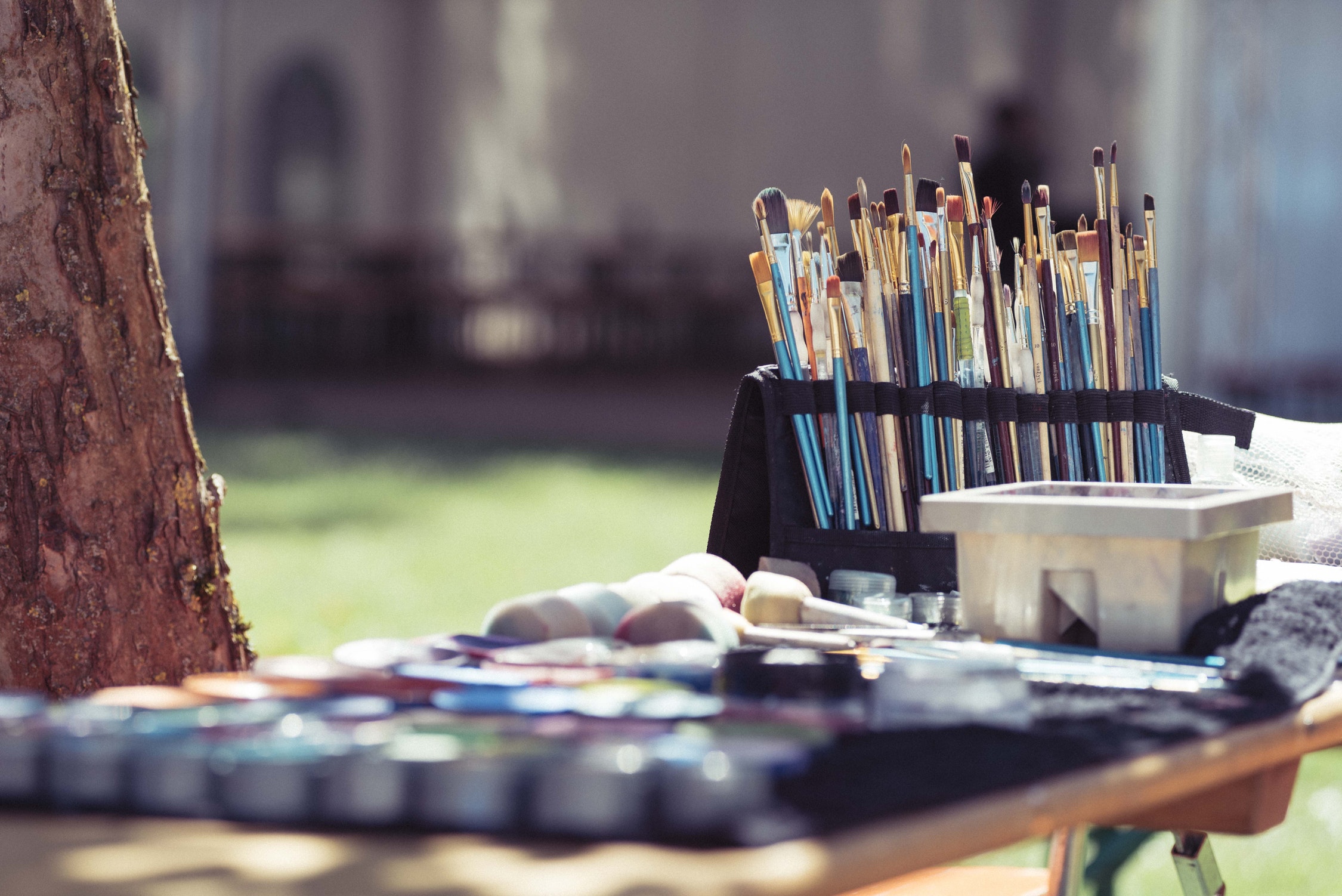
As with the on-site program, students are required to complete 700 hours of practicum and a thesis or major project in order to qualify for graduation.
Badge of Life Canada

Hope - Growth -Recovery

Art Therapy
Art therapy helps people use creativity and self-expression to support their mental health.
How can Art Therapy help?
What is art therapy, why work with an art therapist, how is art therapy helpful for first responders and veterans, where can i find an art therapist in canada, to find a professional or registerd member of the canadian art therapy association (cata), creative arts in counselling and pshychotherapy - canadian counselling and pshychotherapy association, what about making art myself.
Making your own art is also a great wellness tool and can be as simple as:
- zentangling
- using a colouring book
Our exploring fine arts like
- wood burning
- woodworking
All can have benefits on helping us reduce stress, increase focus, and help in expressing ourselves. Engaging in art making, journal writing, and other creative endeavours has been shown to increase resiliency, improve our immune systems, release unneeded energy and emotions in a safe way and help us feel more competent and able to cope.
Even going and seeing art in a gallery can have many positive effects. It’s true—recent studies and research have proven that a trip to the art gallery or a museum can positively impact your health and well-being in several essential ways, like lowering anxiety and depression and boosting critical thinking skills.
Why Art is Good for Your Body and Soul
A number of websites and articles provifding you with useful information about the benefits of art.
Art & Brain Fitness
Better Mind - Better Life
Daily Benefits of Art
8 ways art benefits our everyday lives
Art for Brain Health
Why making art is a great activity for brain health
Veterans Voices - Art of Healing
Art therapy is slowly beconing accepted practice .
Certifications
A short description of the various therapist certifications in Ontario.
Clinical Psychologists
Clinical Psychologists are required to complete a related Masters and Ph.D. program to practice in the province of Ontario that must be research-based and subsequently have a thesis component. They are governed by the College of Psychologists of Ontario (CPO).
Registered Psychotherapists
Registered Psychotherapists (RPs) are registered by the College of Registered Psychotherapists of Ontario (CRPO) and, like Registered Social Workers and Clinical Psychologists, are permitted to perform the controlled act of psychotherapy.
Registered Social Workers
Registered Social Workers (RSW) are helping individuals to enhance their well-being. They are governed by the Ontario College of Social Workers.
- College of Arts & Sciences
- Graduate School of Education & Counseling
- Current Students
- Faculty & Staff
- <a href="/live/image/gid/635/width/650/104700_art_therapy_artwork_2.jpg" class="lw_preview_image lw_disable_preview" tabindex="-1"><picture class="lw_image lw_image104700"><source media="(max-width: 500px)" type="image/webp" srcset="/live/image/scale/2x/gid/635/width/500/height/479/crop/1/104700_art_therapy_artwork_2.rev.1722538962.webp 2x, /live/image/scale/3x/gid/635/width/500/height/479/crop/1/104700_art_therapy_artwork_2.rev.1722538962.webp 3x" data-origin="responsive"/><source media="(max-width: 500px)" type="image/jpeg" srcset="/live/image/scale/2x/gid/635/width/500/height/479/crop/1/104700_art_therapy_artwork_2.rev.1722538962.jpg 2x, /live/image/scale/3x/gid/635/width/500/height/479/crop/1/104700_art_therapy_artwork_2.rev.1722538962.jpg 3x" data-origin="responsive"/><source media="(min-width: 501px)" type="image/webp" srcset="/live/image/scale/2x/gid/635/width/720/height/690/crop/1/104700_art_therapy_artwork_2.rev.1722538962.webp 2x" data-origin="responsive"/><source media="(min-width: 501px)" type="image/jpeg" srcset="/live/image/scale/2x/gid/635/width/720/height/690/crop/1/104700_art_therapy_artwork_2.rev.1722538962.jpg 2x" data-origin="responsive"/><img src="/live/image/gid/635/width/720/height/690/crop/1/104700_art_therapy_artwork_2.rev.1722538962.jpg" alt="Lewis & Clark's newly expanded Community Counseling Center serves as a training ground for counseling students and a thriving me..." data-max-w="1500" data-max-h="1000" loading="lazy" data-optimized="true"/></picture></a> <div class="hero-split_image_caption collapsable-caption">Lewis & Clark’s newly expanded Community Counseling Center serves as a training ground for counseling students and a thriving mental health resource for Portland. L&C’s Art Therapy Program has a new home here, allowing practitioners to offer individual counseling as well as community programming. <a href="/live/news/53560-a-growing-hub-for-mental-health">Read about</a> this growing hub for mental health in the recently published article in L&C Magazine.</div>
Art Therapy
Our Master’s program in Art Therapy prepares students to utilize their passion for art making to deliver skillful, compassionate, and clinically focused care to individuals, groups, families and communities.
Apply Application Requirements
Our Master’s program in Art Therapy prepares students to utilize their passion for art making to deliver skillful, compassionate, and clinically focused care to individuals, groups, families and communities. Grounded in social justice, you will be challenged to confront your biases and beliefs, explore new mediums and themes in your art practice, deepen your awareness of yourself and others, and gain the skillsets needed to support diverse communities as a licensed art therapist and ethical leader.
The mission of Lewis & Clark’s Art Therapy program is to prepare competent, creative, and reflective art therapists who are committed to equity-based clinical and community praxis. Students learn to apply relationally and socially attuned art therapy using art making to deepen awareness of self and others within societal and cultural contexts.
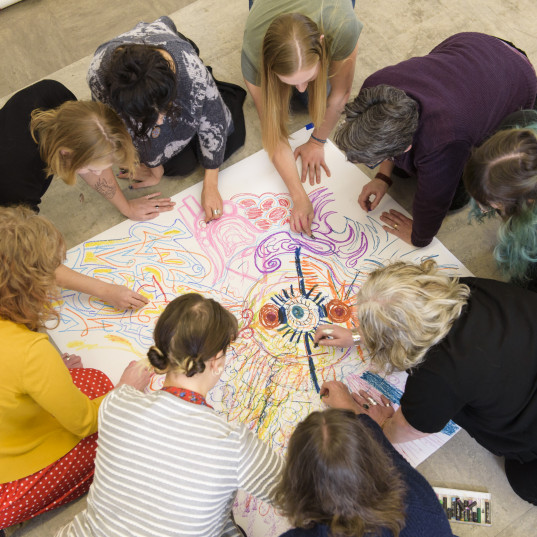
Program Overview
Degrees offered: master of arts; master of science total credit hours: 58 semester hours for ma; 62-64 for ms program length: ma eight semesters; ms minimum eight semesters program start date: fall only program director: mary andrus → students interested in their lpc will also take career counseling for an additional 2 credits. view program of study, program details.
Our full-time, three-year Art Therapy program begins in fall and offers both Master of Arts and Master of Science degree tracks to accommodate students interested in becoming mental health practitioners, as well as those planning to conduct research, aspire to publish or pursue a PhD. Applying a social justice lens, you’ll learn to recognize the impact of oppression, prejudice, discrimination, and privilege on access to mental health care, and develop responsive practices that include collaboration, empowerment, advocacy, and social justice action. Through a combination of rigorous academic work, in-depth training, and real-world job placements, program candidates will be prepared to serve diverse communities as qualified art therapists and equity-minded ethical leaders, providing compassionate, clinically focused care to individuals, groups, and families in a variety of settings.
Our small cohort model provides students with opportunities to connect with program faculty and build a network of colleagues who grow with them as they move into professional practice. A pedagogy of learning that includes critical thinking, experiential engagement, dialogue and reflection helps our students to become engaged in deconstructing social norms and developing skills as an socio-culturally attuned art therapist.
Bridging academic theory into practice, our community based art therapy studio, media center and exhibition gallery, provides students hands-on training with licensed supervisors establishing equity based community centered experience and clinically focused internships. The robust offerings of the graduate school in a wide variety of areas allows students to customize their learning through electives that help build their clinical focus based on their interests and specialization (eg. ecotherapies certificate, eating disorder certificate and other special topics).
Featured News

A Growing Hub for Mental Health
Lewis & Clark’s newly expanded Community Counseling Center serves as a training ground for counseling students and a thriving mental health resource for Portland.
Why Choose Lewis & Clark?

Reputation for Academic Excellence
Lewis & Clark’s programs are respected nationwide for their quality and academic rigor. As Oregon’s only degree path to becoming a licensed art therapist, our program provides the training, skillsets, and real-world experience. You’ll learn to serve diverse populations and become a skilled art therapist in just 3 years, with no GRE required.

Focused on Social Justice & Equity
Our core values of social justice, equity, and access are deeply integrated into every aspect of the art therapy program—from the texts we read and culturally attuned training we offer to the creative work and community projects we undertake. You’ll learn to recognize the impact of oppression, prejudice, discrimination, and privilege on access to mental health care, and develop responsive practices for effectively tackling these issues in your work as an art therapist.
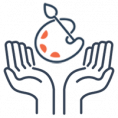
Real World, Hands-On Experience
In all three years of the program, you’ll participate in pre-practicum, practicum and internship experiences in a variety of settings across the Portland metro area—allowing you to apply your theoretical and clinical knowledge hands-on, gain real work experience in the field, and continue to deepen your skillset as an art therapist.

Community Studio & Clinic
Starting in 2022 we will launch a new community studio, which will offer low-cost art therapy services to the Portland community, regular art exhibitions, graduate assistantships and access to the studio space for classroom instruction. In this space students will move theory into practice, serving various community groups and individuals. This 3000 square foot space is one of a kind, including a gallery, a digital media room, multiple individual therapy rooms, a community studio and a group room.

Supportive Environment & Community
With small class sizes and tight-knit cohorts, you’ll receive plenty of personal attention and support from faculty members, staff, peers, and professional mentors— all of whom are committed to your success in the program and in your future career. You’ll form meaningful, lasting connections, enjoy a strong support network for the duration of the program, and establish a growing professional network that helps nurture your career for years to come.

Sought-After Graduates & Career Support
Our program’s reputation for producing exceptional art therapists means our graduates are highly sought-after by employers, with most students receiving a job offer shortly after graduating. Oregon is one of only 8 states with licensure specific to the practice and title protection of art therapists. Alumni of our program are regularly provided with information about employment opportunities and remain connected with program faculty.

Accomplished Program Faculty
Our experienced faculty members and supervisors are committed to ensuring our students’ success both academically and in their future careers. As practicing art therapists, counselors, psychologists, and researchers themselves, they bring their unique perspectives, work experiences, and knowledge of the latest best practices directly to the classroom. Plus, as recognized thought leaders, they are regularly published in mental health publications, providing students with the opportunity to assist in groundbreaking research.

Stunning Campus in a Vibrant, Progressive City
Our beautiful, historic campus is just six miles from downtown Portland, OR with easy access to the city’s cultural offerings, great food, and abundant nature. You’ll quickly discover why Portland was ranked #9 in U.S. News & World Report’s 2020-21 list of best places to live .
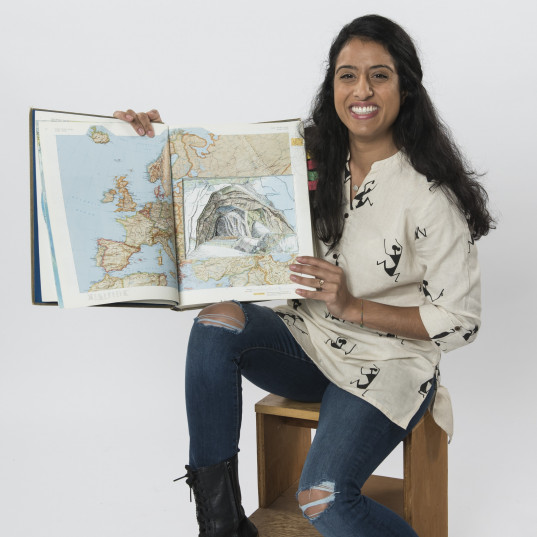
Social justice means advocating for the rights of others, which includes access, opportunity, and worth. It also means empowering vulnerable peoples with the tools to achieve their potential. As art making and a love for people have been my natural inclinations since childhood, it’s been an honor to learn how to support others through the magic of creation.
Social justice mission, deeply committed to social justice.
At Lewis & Clark, our social justice mission is more than a talking point—it’s fully integrated into every aspect of our programs. We strive to facilitate meaningful conversations around social justice topics and teach you how to incorporate equity into your professional practice to better serve your future clients, mental health organizations, and the larger community.
Recognizing that not everyone in our society has the same access to mental health care, our program aims to increase your understanding of the issues and dynamics in the mental health field across social and cultural lines—illustrating how they can impact the therapeutic process. Students will broaden the scope of their diversity awareness and knowledge, including systems of power and privilege, with special attention given to developing an understanding of the intersectionality of contextual and systemic dynamics related to race and racial inequalities, class, nation of origin and language, spirituality and religion, sexual orientation, gender, gender identity and physical abilities. You’ll be prepared to work with individuals, groups, families, and communities from a variety of cultural, linguistic, and economic backgrounds, at every age level. Applying a social justice lens to your work as an art therapist, you’ll learn how to drive greater equity and access in mental health services, promote healing through artmaking, and have a lasting impact on the clients and communities you serve.
Meaningful Engagement with the Local Community
Art Therapy Open Studio is a virtual studio session providing individuals from all walks of life with a safe place to create art and find community, every Thursday from 3-6 pm. Participants can either start a new art piece using the gentle prompt offered in each session or use the time to work on pieces already in progress.
Register for Art Therapy Virtual Open Studio
Art for Social Change Open Studio is a virtual studio session that focuses specifically on exploring social, racial, or political current events. Partnered with the Art for Social Change Committee , this session is designed to support both individual artmaking and facilitate meaningful group projects.
Register for Art for Social Change Virtual Open Studio
All weekly studio sessions are free and open to the public.
- lcarttherapy
lcartforsocialchange
Art Therapy Program Faculty

Mary Andrus
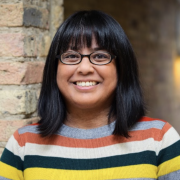
Fredelyn Calla
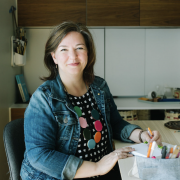
Jolie Guillebeau

Portia Jones
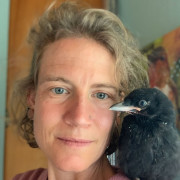
Erin Patridge
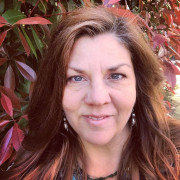
Kristine Bella
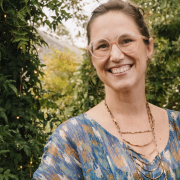
Margaret Hartsook
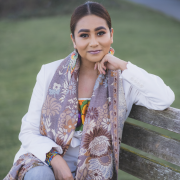
Maria Leija Briones
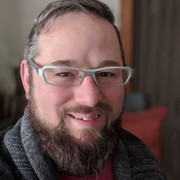
Justin Rock
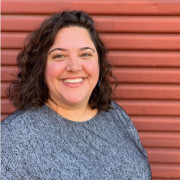
Melissa “Missy” Satterberg
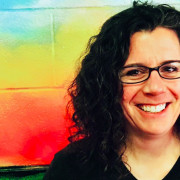
Jillynn Garcia
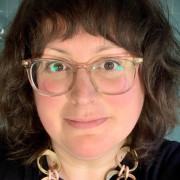
Erin Headley
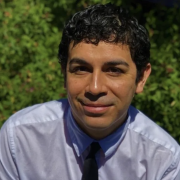
Alphonso Nuñez
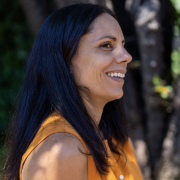
Rosario Sammartino
Gain extensive, hands-on experience.
Through intensive practicum and internship experiences in all three years of our program, you’ll have the opportunity to learn hands-on—applying your coursework to a real-world environment, establishing professional contacts locally, and in the final year students gain 720 hours of art therapy experience and insights that can only be gleaned by working in the field. As a result, you’ll be better prepared to launch your career in Art Therapy as soon as you’re licensed—with the work experience and references needed to stand out from other practitioners and job candidates.
Applying your theoretical and clinical knowledge hands-on, you’ll work with mental health organizations in practice settings that align with your professional goals and desired focus areas. To increase your practical training and job readiness, you can choose from a wide range of placements throughout the Portland metro area including: elementary schools, hospitals, drug treatment facilities, education centers, nursing homes, day treatment programs, and more. Some organizations offer employment to students, the potential to hire our students directly upon graduation. In addition, as a student of our art therapy program, you may also be eligible for paid research assistantship opportunities.
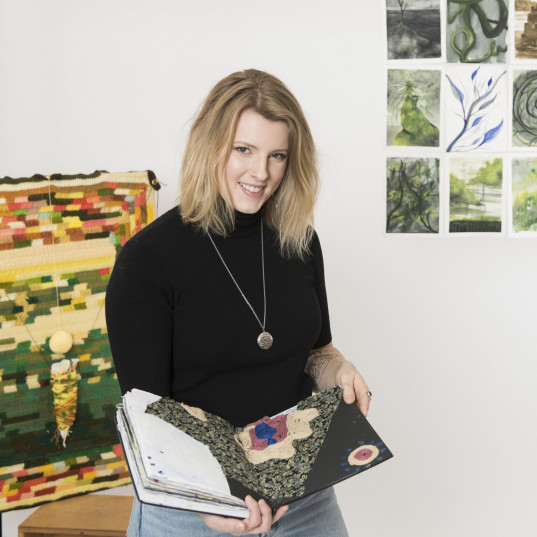
As a white woman from a lower, middle-class family, I believe it is my duty to use my privilege within society to promote equality and power for those within marginalized communities. I hope to work as an Art Therapist to be an agent of positive change.
launching successful careers nationwide.
Our Art Therapy program graduates are in high demand with mental health organizations, nonprofits, and community organizations in the Portland metro area and nationwide, with most students receiving a job offer within six months of graduating.
Lewis & Clark art therapy interns bring a new energy and diverse perspectives to our department at the children’s hospital. They are eager to put their hard-won knowledge and skills to use in meaningful and innovative ways, in a setting that is fast-paced and emotionally intense. We enjoy supporting the growth of new members of our field and Lewis & Clark’s program prepares them well for their journey.” Katie Dunn, LCAT, ATR-BC, ATCS Art Therapy Program Coordinator at Randall Children’s Hospital
|
|
|
|
Total Graduates | 13 | 11 | 10 |
# Employed | 13 | 9 | 10 |
# Continuing Education or Active Military, but not Employed | 0 | 1 | 0 |
Positive Placement | 13 | 10 | 10 |
|
|
|
|
|
|
|
|
Total Number of Credits in Program: 58 minimum Minimum total tuition costs based on 2024-2025 credit rate of $1,100 per credit. Note: Tuition increases each academic year.
- Scholarships
- Full Tuition and Costs
- Financial Aid
We use FAFSA to determine your eligibility for financial aid. A dedicated graduate school financial aid counselor can help you navigate the financial aid process and identify additional resources to help offset the cost of your education.
Other Resources
- Application Requirements & Deadlines
- Handbooks & Forms
- Licensure Requirements
- News & Events
- 2023 Capstone Presentations & Virtual Art Exhibition
- 2022 Capstone Presentations & Virtual Art Exhibition
- 2021 Capstone Presentations & Virtual Art Exhibition
- 2021 Art Therapy Student & faculty Virtual Art Show
- 2020 Capstone Presentations & Virtual Art Exhibition
Our Art Therapy program is accredited by the Commission on Accreditation of Allied Health Education Programs ( www.caahep.org ) upon the recommendation of the Accreditation Council for Art Therapy Education (ACATE).
This program prepares competent entry-level Art Therapists in the cognitive (knowledge), psychomotor (skills), and affective (behavior) learning domains.
Commission on Accreditation of Allied Health Education Programs 25400 US Highway 19 N., Suite 158 Clearwater, FL 33763 727-210-2350 www.caahep.org


COMMENTS
National University is regionally accredited by the WASC Senior College and University Commission (WSCUC). A 2024+ PhD in Art Therapy provides an advanced education in mental and physical challenges through the use of the arts. Learn more about this exciting field in Canada.
ISIS CANADA Creative Integrative Arts Therapy Training Program Address: 468 Queen St. E. Suite LL01; Toronto, ON Canada Tel: (416) 539-9728 Email: [email protected]. West Vancouver, British Columbia, Canada. Vancouver Art Therapy Institute Contact: No name available Address: 350 -1425 Marine Drive, West Vancouver, British Columbia, Canada ...
Up to $2,000 for Graduate Diploma or Graduate Certificate programs. Concordia's Department of Creative Arts Therapies is unique in Canada, offering multidisciplinary options of art therapy, drama therapy, and music therapy graduate programs within a single university department. Through experiential learning and community engagement, we offer ...
The Toronto Art Therapy Institute (TATI), established in 1968, was the first art therapy training program in Canada. We offer a Graduate Level Diploma in Art Therapy (DTATI) in two program formats (Onsite and Distance Learning). Through a curriculum that includes a wide range of topics, we offer training for students to integrate art practices ...
The Canadian Art Therapy Association (CATA) only accepts membership applications from applicants who have graduated from an art therapy program that meet's CATA's. There are two ways that these training programs can demonstrate that they meet these standards. can be audited by CATA directly to determine that they meet these standards.
6: credits of Elective Courses chosen in consultation with an academic faculty advisor, are required of all candidates. With the approval of the Chair of Creative Arts Therapies and that of the cooperating department, some or all of the elective credits may be chosen from other graduate programs in the Faculty of Fine Arts, in other faculties at Concordia, or other universities.
Art Therapy Graduate Programs: Overview. Art therapy graduate programs exist at the intersection of the arts and counseling. Students enrolled in these programs study the use of visual arts, drama or music as treatment strategies within psychotherapy and mental health support. Graduate art therapy classes may cover top appraisal techniques, as ...
CONTACT. Vancouver Art Therapy Institute #300 - 291 E. 2nd Ave. Vancouver, BC V5T 1B8 Phone: 604-681-8284 Email: [email protected] Expressive Arts Therapy Contact Email: [email protected] Email: [email protected]
TATI offers two graduate level diploma programs in art therapy: Onsite and Distance Learning (DL). Both the Onsite and DL program include 3 components: 16-months of accelerated full-time coursework, 700 hours of practicum, and a research project (thesis or practice-based major project). Students have up to two years after the last date of ...
He first used art therapy in his work at an Ontario hospital in 1947. He actively promoted its development as a form of therapy until he died in 1992. Dr. Fischer established TATI as the first art therapy training program in Canada. He was also instrumental in the founding of the Vancouver Art Therapy Institute and the Phoenix Art Therapy ...
PROGRAMS. Concordia University's Creative Arts Therapies programs are international in scope, combining both theoretical and practical approaches to graduate training. Students have published and presented papers and workshops at international conferences. Our programs attract highly motivated students from around the world, including teachers ...
In Canada, professional art therapists must have at minimum a master's level diploma or master's degree in art therapy to practice. This graduate level education includes supervised clinical practicum hours (700 hours minimum for Canadian art therapy students), thus ensuring the safety of the client as well as professional liability for ...
The SCA's PhD in Contemporary Arts is a research-intensive program focused on interdisciplinary approaches to the fine and performing arts. The program supports both scholarly and practiced-based research, with students tailoring their degrees to their specific research interests. Students pursuing primarily scholarly approaches to visual ...
PhD in Art and Visual Culture. • Admission to the Ph.D. program requires either an M.A. in art history, visual culture or curatorial studies or an M.F.A. or M.V.A. with an average of at least 80% (A-). • Students with equivalent qualifications in relevant visual fields such as film or media studies may also be considered. • Students must ...
Canadian Art Therapy Association. Art therapy is a broad term with deep roots. When properly facilitated, it can draw on our innate creativity to help us heal, grow and transform. Browse our list of art therapy training programs that meet CATA education standards. Graduates of these programs are eligible to apply for Professional or Registered ...
There are a number of post-graduate educational institutions in Canada which offer art therapy studies: Vancouver Art Therapy Institute (diploma program) www.vati.bc.ca; Adler University Vancouver Campus (Master's program) www.adler.edu; Kutenai Art Therapy Institute in Nelson, B.C. (diploma program) www.kutenaiarttherapy.com
Kate holds a post-graduate diploma from Kutenai Art Therapy institute and a BA Hons in Fine Art and History of Art from Goldsmiths University, London. Kate also has a private practice in Nelson, runs transformational online courses and one-to-one therapy via. Ana (ella/she/her) is a Mexican feminist art therapist.
For people living further away from Toronto, we offer a Graduate Level Diploma in Art Therapy Distance Learning (DL) Program. While the majority of the program is delivered online, it includes 176 hours of mandatory in-person, on-campus classroom learning through two 2-week intensive semesters. As with the onsite program, the DL program ...
Explore your Art Therapy degree. Art Therapy is a therapeutic practice that utilises art-making to aid individuals in expressing themselves, managing stress, and exploring emotions and experiences. It combines psychological theories with artistic processes to support mental health and well-being. Specialisations in Art Therapy include child art ...
Program Overview. Adler University's Master of Counselling Psychology: Art Therapy program prepares students to work as counsellors, art therapists, and educators in a leading-edge field that combines the arts and psychology to improve physical, mental, and emotional wellbeing. Our unique degree offering trains graduates to be socially ...
In Canada, an undergraduate degree in fine arts, psychology, social work or counselling is required before entering one of the art therapy programs. If the undergraduate degree is in another area, a prior learning assessment can be recognized to determine appropriate equivalency. It is recommended to have art and psychology courses.
This graduate level education includes supervised clinical practicum hours (1000 hours for Canadian art therapists), thus ensuring the safety of the client as well as professional liability for agencies and employers offering this form of therapy. A Registered Canadian Art Therapist (RCAT) is a Professional Member in good standing that received ...
Lewis & Clark's programs are respected nationwide for their quality and academic rigor. As Oregon's only degree path to becoming a licensed art therapist, our program provides the training, skillsets, and real-world experience. You'll learn to serve diverse populations and become a skilled art therapist in just 3 years, with no GRE required.